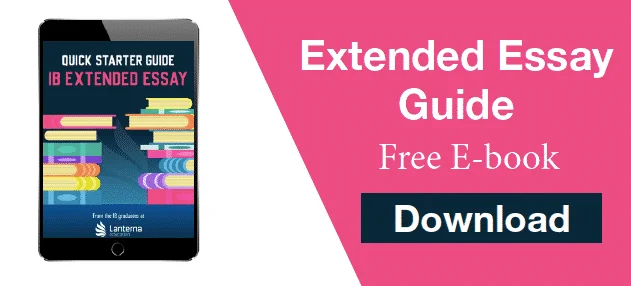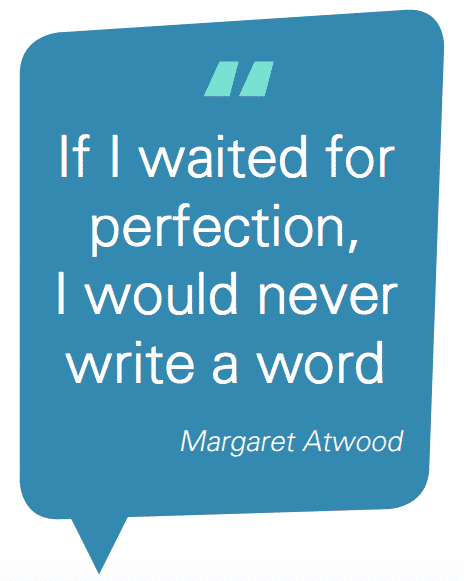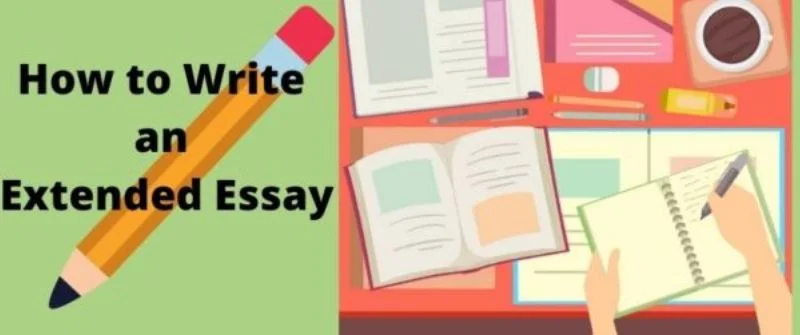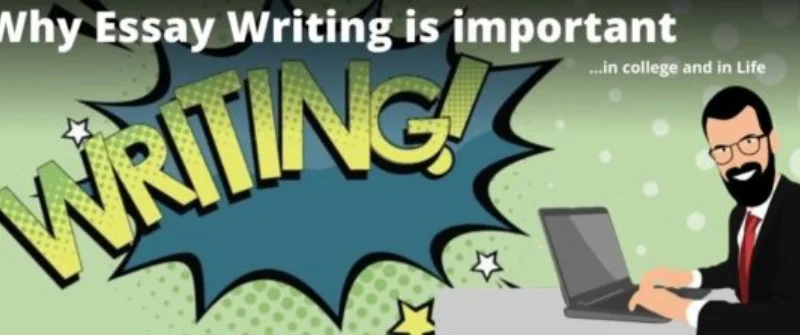

How to write full mark essay in Yr 7-12 (tips from a James Ruse graduate)

State Ranker Frankenstein Notes: Worlds of Upheaval (English Extension 1)
Full mark essay tips for english extension 1 by a state ranker.

- Uncategorized
- essay sample
- extension english 1

How to Write a Section II Critical Response
As one of the most important writing skills for English Extension 1, being able to compose a critical piece in response to a complex elective question takes practice. However, to create a sophisticated response under time constrains further requires you to have a strong understanding of the syllabus and the texts you are studying.
Rationale Understanding
The first step to answering a question for your elective that you have studied throughout the year is to first ensure you have a solid understanding of the elective itself. Obtaining a digital copy or printing the syllabus yourself for your elective then highlighting keywords and forming questions out of them will be a valuable tool when revising as you now have a question bank to respond to.
Preparation: Resource Collation
Following this, tailoring your response to best meet the needs of the question comes down to ensuring you have relevant and high-level analysis on both your main and related texts. As a hot tip, really spending the time to read scholarly articles on your texts and trying your best to understand them will majorly help you as you could now have an additional perspective on the text you are studying.
Your Introduction
As you may know, the start of your essay is undoubtedly important in ensuring you answer the question succinctly while offering unique perspectives. Employing sophisticated vocabulary that actually fits in with the question and works well with your essay holistically is another skill that will help you in answering any critical response question. Take a read of these few sentences and take a moment to first digest what this question is asking and second why it makes a strong thesis.
“The fragmentation of the socio-political climates in human history, as mirrored through paradigmatic binaries, are inextricably permeated through the dichotomy between alternate historical periods. Accordingly, the accumulation of grotesque global events catalysed the profound shift in global consciousness and is documented through the literature of the time to reflect and activate change in attitudes, perspectives and social circumstances.”
The body of your essay is the bulk of your argument and shows the marker that you truly know your texts in relation to the question being asked. Taking the time to study your analysis and find which parts resonate will you helps make it easier when it comes exam time as you have an authentic appreciation for your texts. Consistently linking back to the question is a must include as it directly shows the marker you are still answering the same question, even five paragraphs into the essay! Including literary analysis, sophisticated commentary and integration of your own opinion of the text supported your understanding of the syllabus are a few of the essential elements of body paragraph success. Take a read at the beginning of a general body paragraph about ‘Waiting for Godot’ below and make note of the sophisticated phrases, contextual detail and strong topic sentence. To see a detailed guide on how to write essays from scratch, visit our blog post “ How to Write a Full Mark Essay in Yr 7-12 “.
“Indeed, Samuel Beckett’s absurdist drama, ‘Waiting for Godot’, manifests as an artistic rebellion, as Beckett promulgates that existential angst and individual paralysis within the era is a direct implication of ideological uncertainty. Through subverting literary conventions, Godot is able to reflect the societal dichotomies during an uncertain age, further amplifying Beckett’s attempt in divulging the malleability of truth during times of upheaval. According to Beckett himself, “to find a form that accommodates the mess” is the task of a Cold War artist; as government regulation intensified over both media and the arts during the 1940s, intentional subversion and manipulation of the form of traditional drama became a means of defying the imposed controls. Analogously, categorized as the ‘Theatre of the Absurd’, a term coined by Martin Esslin, Beckett employs notions of irrationality and incongruity of life into the drama to overturn what society generally regarded as ‘real’; undoubtedly, the premier shocked the audience as it presented a new type of theatrical performance that used unconventional methods, having nearly caused riots across Western Europe (Esslin 2) . ”
The depth of textual detail and insightful analysis of language features and form is also very important, and make sure that it continually links back to the question, your topic sentence and thesis statement. The following is a continuation of the previous segment of a body paragraph:
“ In conveying the senselessness of life and the loss of ideals, Beckett unconventionally questions existence, then immediately juxtaposes this with vaudeville humour, as the protagonists’ hapless drollery calls to mind the buffoonery of comedians and tramps, such as Charlie Chaplin and Laurel and Hardy. Nonetheless, the deadpan humour, non-sequitur commenting and the drama’s static nature are accentuated by the constant mutter of “nothing to be done”, a leitmotif depicting purposelessness and lack of understanding. Furthermore, Beckett exacerbates the deterioration of ideological certainty through the absence of meaningful dialogue, reaffirming Irish critic Vivican Mercer, stating that “nothing happens, twice”. When such stylistic and linguistic features are coupled with the Cartesian solipsism of “I think, therefore I am”, Beckett reiterates the grapple of humankind to apprehend personal identity amidst deviating socio-cultural paradigms. Moreover, the personification of existential ennui and cyclical suffering is further perpetuated by Vladimir and Estragon’s tenacious adoption of a Sisyphean repetition and struggle as the stage direction in “Yes, let’s go. [They do not move]” becomes a mimesis for the macrocosmic attitudes of nihilism and disillusionment that predicted the anxieties of the early phases of the epoch. Notwithstanding, many critics including Martin Esslin, consider Lucky’s thinking act as a “wild schizophrenia word salad”; there is indeed a method in madness, bringing about a sense that words have been put together haphazardly to create a particular structure, and therein lies the meaning. Resultantly, Lucky’s speech may be a reflection of the play itself in concise form, producing meaning from its formlessness and lack of substance, with Beckett himself remarking that the “threads and themes of the play are being gathered together [in Lucky’s speech]”. Absurdist elements are portrayed, including Lucky’s continual repetition that everything happens for “reasons unknown”, yet repeatedly says “I resume”, underscoring that despite human efforts being meaningless, one must strive to achieve something positive .”
At JP English, our state rank and high Band 6 tutors help students to continually refine their written expression and exam technique so that they can easily write sophisticated essays under timed conditions.
Want to learn more? Click here to watch a recording of our essay writing seminar on our Youtube channel.
Contact us to see how we can help you today!

Related posts

JP English Student Successes: How Colette Scored within the top 10% band for writing in the Selective Exam

James Ruse Graduate’s Tips on How to Write An Engaging Narrative Opening

James Ruse Graduate’s Tips on How to “Show, Not Tell” in Creative Writing
Extended Essay
Extended Essay Examples

26 Best Extended Essay Examples for Inspiration
Published on: May 3, 2023
Last updated on: Jan 30, 2024

People also read
A Step-by-Step Guide For Writing an Extended Essay
Extended Essay Outline Made Easy: Components, Writing Steps, & Tips
Get Inspired: 110 Unique Extended Essay Topics and Ideas
Share this article
Are you struggling to choose a topic or develop a research question for your Extended Essay? Or are you looking for examples to help guide your writing process?
Look no further!
In this blog, we will provide you with a variety of extended essay examples across different subject areas. By examining these examples, you can gain a better understanding of what a well-written extended essay looks like.
So, without further ado, let's start the blog!
On This Page On This Page -->
What is an Extended Essay?
An extended essay is a research paper that students write as part of the International Baccalaureate (IB) program . This type of essay aims to allow students to dig deeply into a topic, and develop their writing skills.
The Extended Essay must be between 3,500 and 4,000 words. It is typically written in one of the six subject areas:
- Language and Literature
- Language Acquisition
- Individuals and Societies
- Mathematics
Want to learn more about Extended essay writing? Check out his video!
Let's explore extended essay examples categorized by subject to better understand various topics and research questions within each discipline.
IB Extended Essay Examples
Here are some IB Extended Essay Examples:
IB Extended Essay Example Biology
IB Extended Essay Example World Religions
English Extended Essay Examples
English Extended Essay Example 1
English Extended Essay Example 2
History Extended Essay Examples
History Extended Essay Example 1
History Extended Essay Example 2
Psychology Extended Essay Examples
Psychology Extended Essay Example 1
Psychology Extended Essay Example 2
Economics Extended Essay Examples
Economics Extended Essay Example 1
Economics Extended Essay Example 2
Physics Extended Essay Examples -H3
Physics Extended Essay Example 1
Physics Extended Essay Example 2
Math Extended Essay Examples -H3
Math Extended Essay Example 1
Math Extended Essay Example 2
Business Extended Essay Examples -H3
Business Extended Essay Example 1
Business Extended Essay Example 2
Chemistry Extended Essay Examples
Chemistry Extended Essay Example 1
Chemistry Extended Essay Example 2
Global Politics Extended Essay Examples
Global Politics Extended Essay Example 1
Global Politics Extended Essay Example 2
Music Extended Essay Examples
Music Extended Essay Example 1
Music Extended Essay Example 2
Visual Arts Extended Essay Examples
Visual Arts Extended Essay Example 1
Visual Arts Extended Essay Example 2
World Studies Extended Essay Examples -H3
World Studies Extended Essay Example 1
World Studies Extended Essay Example 2

Paper Due? Why Suffer? That's our Job!
Tips for Writing Extended Essays
Here are some tips for writing extended essays:
- Choose a topic that interests you and aligns with your strengths.
- Create a research question that is specific, manageable, and has enough depth to explore in detail.
- Develop a clear outline and structure for your essay, including an introduction, main body, and conclusion.
- Use a variety of sources, including academic journals, books, and primary sources, to support your arguments.
- Maintain a critical and analytical approach throughout your essay, examining various perspectives and evaluating the strengths and weaknesses of different arguments.
- Avoid plagiarism by citing your sources correctly and using your own words to explain your ideas.
- Revise and edit your essay thoroughly, ensuring that it is coherent, logical, and well-written.
- Seek feedback from your supervisor or teacher, as well as peers or family members, to improve your essay further.
In conclusion, extended essay writing is an essential part of academic life, and it requires a lot of dedication and practice. However, with the right guidance and inspiration, anyone can excel in writing a compelling extended essay.
The examples we have explored in this blog have provided valuable insights into the process. We hope they have inspired you to start your own journey toward excellence.
But if you need any additional assistance, don't hesitate to reach out to CollegeEssay.org. Our extended essay writing service consists of professional writers who are always ready to help you with your writing assignments.
We provide the best essay writing service to meet your specific needs and requirements.
So, get in touch with us today, and let our essay writer help you achieve your academic goals!
Cathy A. (Literature, Life Sciences)
For more than five years now, Cathy has been one of our most hardworking authors on the platform. With a Masters degree in mass communication, she knows the ins and outs of professional writing. Clients often leave her glowing reviews for being an amazing writer who takes her work very seriously.
Paper Due? Why Suffer? That’s our Job!

Keep reading

Legal & Policies
- Privacy Policy
- Cookies Policy
- Terms of Use
- Refunds & Cancellations
- Our Writers
- Success Stories
- Our Guarantees
- Affiliate Program
- Referral Program
- AI Essay Writer
Disclaimer: All client orders are completed by our team of highly qualified human writers. The essays and papers provided by us are not to be used for submission but rather as learning models only.

A State Ranker’s Guide to Writing 20/20 English Advanced Essays
I completed 4 units of English, so take it from me, I've written lots of essays!

Marko Beocanin
99.95 ATAR & 3 x State Ranker
1. Introduction to this Guide
Essays can be tough. Like, really tough.
They’re made tougher still because every HSC English module has a different essay structure, and no-one seems to have a consistent idea of what an ‘ essay’ actually is (not to get postmodern on you!).
My name is Marko Beocanin, and I’m an English tutor at Project Academy. In this post I hope to demystify essay-writing and arm you with a “tried and proven” approach you can apply to any essay you’ll write in HSC English and beyond. In 2019, I completed all four units of English (Extension 2, Extension 1, and Advanced), and state ranked 8th in NSW for English Advanced and attained a 99.95 ATAR – so take it from me, I’ve written a lot of essays! Here’s some of the advice I’ve picked up throughout that experience.
2. My Essay-Writing Methodology
For us to understand how to write an essay, it’s important to appreciate what an essay (in particular, a HSC English essay) actually is. I’ve come to appreciate the following definition:
An essay is a structured piece of writing that argues a point in a clear, sophisticated way *, and expresses* personality and flair.
Let’s have a look at each of these keywords – and how they should inform our essay-writing process – in more detail.
3. “Arguing a point” means CAUSE and EFFECT
When most people study English, they tend to make huge lists of Themes, Values, Concerns, Quotes and so on. While this is a great exercise for collecting evidence and understanding your texts, it’s important to remember that your essay is not simply a theme summary or quote bank – you have to actually argue something!
And any argument needs a cause and an effect.
When you approach any essay question, it’s not enough to simply chuck in quotes/topic-sentences that abstractly relate to it. An internal checklist you could go through while reading a question might look like:
What is the question actually asking me?
What is my response to the question?
Am I actually making an argument in my response, and not just repeating the question?
What is my cause?
What is my effect?
How can I prove my argument?
It’s only at question 4 that quotes/analysis/topic-sentences appear. Your first step in writing any essay is to actually have an argument to prove.
Cause and Effect in Thesis Statements
To demonstrate what I mean by cause-and-effect, let’s have a look at a lower-band essay thesis on Nineteen Eighty-Four:
In Nineteen Eighty-Four, George Orwell explores totalitarianism.
This sentence is a flat declaration of a theme. While it does identify totalitarianism, it doesn’t give any indication on what parts of totalitarianism Orwell explores, and what the actual effect of totalitarianism is.
In Nineteen Eighty-Four, George Orwell explores the abuse of power in totalitarian regimes.
This one is certainly better, because it describes a specific element of totalitarianism that Orwell explores – but it’s still missing an actual argument about what totalitarianism DOES to people. A full cause and effect (and higher band) thesis statement might look like:
In Nineteen Eighty-Four, George Orwell explores how the abuse of power in totalitarian regimes leads to a brutalised human experience.
This thesis explicitly outlines how the CAUSE (abuse of power in totalitarian regimes) leads to the EFFECT (a brutalised human experience).
There’s certainly still some ambiguity in this sentence – for example, what sort of human experiences are being brutalised? – and in an exam, you’d substitute that for the specific human experiences outlined in the question.
In general, whenever you see sentences like “Composer X discusses Theme Y” in your essay drafts, think about developing them into “Composer X discusses how Specific Cause of Theme Y leads to Specific Effect of Theme Y”.
Cause and Effect Diagrams
To make sure that your arguments actually have a specific cause and effect , try writing them out in the following diagrammatic way:

_Surprisingly, drawing the arrow made a huge psychological difference for me! _
If you struggle with this, try to restructure/rephrase your arguments until they can be categorised in such a way. Making and rewriting these diagrams is also a great way to prep for exams without writing out your whole essay.
Cause and Effect in Analysis
Similarly, when it comes to your actual analysis itself, make sure that you’re not just listing techniques and quotes. You’re not just analysing your quotes for the sake of naming the techniques in them – you’re analysing them to prove a point!
Whenever you consider a quote for your essay, ask yourself:
What is this quote about?
How does this quote prove my argument?
How do the literary techniques in this quote prove my argument?
Let’s use an example from King Henry IV, Part 1 to illustrate this. A lower band piece of analysis might look like:
King Henry’s opening monologue employs anthropomorphism: “Daub her lips with her own children’s blood…bruise her flow’rets with…armed hoofs.”
While the technique of anthropomorphism is identified, this sentence doesn’t link to any argument about WHY that technique is there and what it does.
King Henry’s opening monologue anthropomorphises England as a mother violated by war: “Daub her lips with her own children’s blood…bruise her flow’rets with…armed hoofs.”
This is certainly better, because it explains what the technique actually does – but it still doesn’t discuss how the technique guides us to an actual point.
King Henry’s opening monologue anthropomorphises England as a mother violated by war: “Daub her lips with her own children’s blood…bruise her flow’rets with…armed hoofs…” to convey the civil unrest caused by his tenuous claim to the throne.
This analysis not only outlines the technique in detail, but it also explicitly embeds it with an argument – this time, structured as EFFECT ( civil unrest ) caused by CAUSE ( his tenuous claim to the throne ).
In general, whenever you see analysis in your drafts written as “Composer X uses Technique Y in Quote Z”, try to rewrite it as “Composer X uses Technique Y in Quote Z to argue Point A”.
4. Clear, Sophisticated Way
In general, clarity/sophistication in Advanced essays comes from two main sources.
Essay Structure
For most essays, the simplest and most effective overall structure looks like:
Intro: Here, you answer the question with an argument, summarise your points and link to the rubric.
3 – 4 Body Paragraphs: Here, you actually make your points.
Conclusion: Here, you re-summarise your arguments and ‘drop the mic’.
While it’s cool to play around with the number of body paragraphs, for example, the structure above is generally a safe bet for Advanced.
The most variety comes from the actual structure within your body paragraphs.
There are plenty of online guides/resources with fun acronyms like STEEL and PEETAL and less fun ones like PEEQTET – but ultimately, the exact formula you go with is a relatively inconsequential matter of choice and style. Just make sure you have the following elements roughly in this order!
Cause and Effect Topic Sentence
Here, you make your point as clearly as possible (remember cause and effect), and address the specific argument that the paragraph will cover. It’s fantastic if you can link this argument to the argument in your previous paragraph.
Context Sentence
This bit is vital (and often forgotten!). Texts don’t exist in a void – their composers had lives, were influenced by the world around them, and had inspirations and purposes in their compositions. Context can be political, socio-cultural, religious, philosophical, literary etc… as long as it’s there!
Cause and Effect Analysis
In a three-paragraph structure, a solid aim is for four to five quotes per paragraph. Each point you make should be justified with a quote, and each quote should have a technique linked to it. It’s usually helpful to order your quotes chronologically as they appear within the text (to show how the argument progressively builds) – but in more non-linear forms like poetry, for example, you can switch it up a little. Make sure each paragraph covers quotes from the whole text, to demonstrate a broad range of analysis!
Here, you might give a restatement of your topic sentence that summarises your main ideas.
Wording and Expression
A common misconception with English Advanced is that huge words and long, meandering sentences will score the most marks.
In Advanced, clarity should come from your expression , while sophistication should come from your ideas . Ultimately, the more complex your expression and sentence structure is, the more your markers will have to work to connect with your content.
While an occasional well-executed piece of technical jargon is impressive, it should never come at the cost of clearly and explicitly getting your point across.
A few general tips I’ve picked up from both my time as a student and my work as a tutor include:
Avoid using a thesaurus/online synonym-search whenever possible! If you didn’t consider using a word naturally, it’s unlikely it will flow with the rest of your expression.
A long, comma-intensive sentence can (and should) almost always be replaced with two or more sentences.
Use semicolons sparingly (if at all), and with GREAT caution.
Never underestimate words like “because”, “leads to”, “causes” etc. They are simple, but brilliantly effective at establishing a clear cause and effect structure!
Make sure to continuously reuse words from the question. Even if this feels clunky, it helps you actually engage with the question.
Also make sure to continuously use rubric keywords – particularly in Common Mod and Mod A!
5. Personality and Flair
And now… the hardest bit. Putting a bit of you into your essays.
There’s no one way to “add personality/flair” – this is where you have the freedom to develop your own voice and style. Remember that your markers love literature – and for them to see real, unadulterated enthusiasm in your work is an absolute win that will be marked generously.
To develop that passionate flair/personality, I encourage you to do three things:Practice. A Lot. The more you write – whether it’s homework questions, mini paragraphs, or flat-out full practice essays – the better you’ll become at writing. It’s as simple as that.
6. Concluding Remarks
Get feedback on your work..
To make sure you’re actually improving with your writing, aim to get plenty of feedback from both of these groups:
People who know your text and HSC English in-and-out (teachers, tutors, scholars etc.), so they can engage with your analysis and help develop your style/structure.
People who don’t know your texts and HSC English particularly well (parents, friends, etc.), so they can check your arguments actually make sense!
Explore your own English-related interests.
Reading widely and writing weird stuff just for fun adds an indescribable but very real level of depth and nuance to your essay-writing. For me, this involved immersing myself in crazy literary theory that had nothing to with my texts, and writing super edgy poetry. Find what works for you!
Good Luck!!!
Whether this article reaches you the night before Paper 1, or at the start of your English journey – I’m confident that you can do this. If you can find even one thing that you connect with about this subject… whether it’s a character you love, or a beautiful poem, or a wacky critical piece that’s totally BS… hopefully you’ll realise that essay writing doesn’t have to be so tough after all!

How I Achieved 3rd in NSW for 3U Maths and a 99.80 ATAR
I’m here to pass on the strategies I used to achieve my goal ATAR of 99.80 an...

Laura Hardy
State Ranker & 99.85 ATAR

Achieving 3 State Ranks, a perfect 99.95 ATAR and being School Captain
At times, Year 12 was the last lap of Mario Kart’s Rainbow Road – where the...

How I achieved a 99.65 ATAR and Got Into Medicine
The biggest misconception that I often hear students say about the HSC is that...

Xerxes Lopes
All-Rounder & 99.65 ATAR

Achieving Two State Ranks, Dux and a 99.95 ATAR
I’d be lying if I told you that I enjoyed sitting my HSC...

Cory Aitchison
State Ranks (Economics and Chemistry) & 99.95 ATAR
Maximise Your Chances Of Coming First At School
Trial any Project Academy course for 3 weeks.
NSW's Top 1% Tutors
Unlimited Tutorials
NSW's Most Effective Courses
Access to Project's iPad
Access to Exclusive Resources
Access to Project's Study Space

- Westbourne Voices
- Awards and Affiliations
- Virtual Tour
- Admissions Overview
- School Admissions Process
- Nursery Admissions Process
- International Student Admissions
- Visits & Open Days
- Welcome to Nursery
- Nursery Life
- Nursery Curriculum
- Nursery Sessions
- Nursery Fees and Applications
- Stepping up to Prep School
- Welcome to Prep School
- Prep Academic Curriculum
- Prep Co-Curricular
- Prep School Case Studies
- Stepping up to Senior School
- Welcome to Senior School
- GCSE Subjects
- Senior Co-curricular
- Stepping Up to Sixth Form
- Welcome to Sixth Form
- IB Subjects
- IB Inner Core
- Oxbridge and Russell Group
- Careers Guidance
- Super Curriculum
- Sixth Form Case Studies
- Westbourne Life
- Welcome to Boarding
- Boarding Options
- Boarding Life
- Boarding FAQs
- Boarding Case Studies
- School Uniform
- School Transport
- Visiting Information
- Immersion Programmes

How To Write The Extended Essay (With Topics and Examples)
This comprehensive guide navigates through every aspect of the EE, from selecting a topic and developing a research question to conducting in-depth research and writing a compelling essay. It offers practical strategies, insights, and tips to help students craft a piece of work that not only meets the rigorous standards of the IB but also reflects their academic passion and curiosity. Join us as we explore the keys to success in the Extended Essay, preparing you for an intellectually rewarding experience.
Posted: 13th February 2024
Section jump links:
Section 1: Understanding the IB Extended Essay
Section 2: the importance of the extended essay, section 3: selecting a topic, section 4: developing your research question, section 5: research methodology and theoretical frameworks, section 6: evaluating sources and data, section 7: integrating evidence and analysis, section 8: writing and structuring the extended essay, section 9: reflection and the rppf, section 10: the significance of academic discipline in the ee, section 11: good practice in extended essay writing, section 12: managing the extended essay process, section 13: collaboration and feedback, section 14: avoiding plagiarism, section 15: emphasising original thought, section 16: final presentation and viva voce, section 17: beyond the extended essay, what is the ib extended essay.
The International Baccalaureate (IB) Extended Essay (EE) is a cornerstone of the IB Diploma Programme . It’s an independent, self-directed piece of research, culminating in a 4,000-word paper. This project offers students an opportunity to investigate a topic of their own choice, bridging the gap between classwork and the kind of research required at the university level.
Key Objectives and the Role of the EE in the IB Curriculum
The Extended Essay has several key objectives:
- To provide students with the chance to engage in an in-depth study of a question of interest within a chosen subject.
- To develop research, thinking, self-management, and communication skills.
- To introduce students to the excitement and challenges of academic research.
The EE plays a critical role in the IB curriculum by:
- Encouraging intellectual discovery and creativity.
- Facilitating academic growth and personal development through research and writing.
- Preparing students for the rigours of higher education.
Extended Essay Word Count and Requirements
The EE has a maximum word count of 4,000 words. This does not include the abstract, contents page, bibliography, or footnotes (which must be used sparingly). Here are some essential requirements:
- Research Question: Your essay must be focused on a clear, concise research question. You should aim to provide a comprehensive answer to this question through your research and writing.
- Subject : The EE can be written in one of the student’s six chosen subjects for the IB diploma or in a subject recognized by the IB.
- Supervision : Each student is assigned a supervisor (usually a teacher in their school) who provides guidance and support throughout the research and writing process.
- Assessment: The essay is externally assessed by the IB, contributing up to three points towards the total score for the IB diploma, depending on the grade achieved and the performance in the Theory of Knowledge course.
The Extended Essay is not just an academic requirement but a unique opportunity to explore a topic of personal interest in depth. This can be an incredibly rewarding experience, providing valuable skills and insights that will serve you well in your future academic and professional endeavours.

The EE is more than just a requirement for the IB Diploma. It’s an essential part of the IB experience , offering profound benefits for students. Let’s explore why the EE holds such significance.
Academic and Personal Development Benefits
Skill enhancement:.
The EE fosters a range of academic skills crucial for success in higher education and beyond. It teaches students how to:
- Conduct comprehensive research
- Develop a coherent argument
- Write extensively on a subject
- Manage time effectively
Personal Growth:
Beyond academic prowess, the EE encourages personal development. Students learn to:
- Pursue their interests deeply
- Overcome challenges independently
- Reflect on their learning process
- Enhance their curiosity and creativity
Contribution to University Admissions
Standout applications:.
The EE can be a significant advantage in university applications . It demonstrates a student’s ability to undertake serious research projects and commit to an intensive academic task. Universities value this dedication, seeing it as indicative of a student’s readiness for undergraduate studies.
Showcase of Skills:
The EE allows students to showcase their research, writing, and analytical skills. It provides concrete evidence of their academic abilities and their capacity to engage deeply with a topic of interest.
Skill Development: Research, Writing, and Critical Thinking
Research Skills:
Students learn to navigate academic literature, evaluate sources, and gather relevant data. This process sharpens their research skills, laying a solid foundation for future academic endeavours.
Writing Skills:
Crafting a 4,000-word essay challenges students to express their ideas clearly and persuasively. It hones their writing skills, teaching them the art of structured and focused academic writing.
Critical Thinking:
The EE encourages students to analyse information critically, assess arguments, and develop their viewpoints. This critical engagement fosters a sophisticated level of thought, beneficial in both academic and real-world contexts.
In conclusion, the Extended Essay is a pivotal element of the IB Diploma Programme. It’s an invaluable opportunity for intellectual and personal growth, preparing students for the challenges of higher education and beyond. With its emphasis on independent research and writing, the EE equips students with the skills and confidence to navigate their future academic journeys successfully.

Choosing a topic for your Extended Essay is the first step in a journey towards developing a deep understanding of a specific area of interest. It’s crucial to select a topic that is not only academically viable but also personally engaging. Here’s how to navigate this critical phase.
Factors to Consider When Choosing Your EE Topic
Interest and passion:.
Select a topic that fascinates you. Your interest will sustain motivation over the months of research and writing.
Availability of Resources:
Ensure there are enough resources available on your chosen topic. Access to libraries, databases, and experts in the field is essential for comprehensive research.
Scope and Focus:
The topic should be narrow enough to allow for in-depth study yet broad enough to find sufficient research material. Balancing specificity with resource availability is key.
IB Subject Areas:
Your topic must align with one of the subjects you are studying in the IB Diploma Programme or an approved subject area. Familiarity with the subject’s methodology and criteria is crucial for success.
How to Align Your Interests with the IB Subjects
Explore the syllabus:.
Review the syllabus of your IB subjects to identify topics that interest you. This can provide a framework for your EE.
Consult with Teachers:
Teachers can offer insights into feasible topics that align with the IB criteria and offer guidance on how to approach them.
Consider Interdisciplinary Topics:
Some of the most engaging EEs explore the intersection between different subjects. If this interests you, ensure your approach meets the criteria for an interdisciplinary essay under the IB’s World Studies EE option.
Extended Essay Topics: Examples Across Various Disciplines
- Sciences: How does the introduction of non-native plant species affect biodiversity in your local ecosystem?
- History : What was the impact of Winston Churchill’s leadership on Britain’s role in World War II?
- English: How does the use of unreliable narrators influence the reader’s perception in Ian McEwan’s novels?
- Mathematics: Investigating the application of the Fibonacci sequence in predicting stock market movements.
- Visual Arts: Exploring the influence of Japanese art on Claude Monet’s painting style.
Selecting the right topic is foundational to your EE journey. It shapes your research direction, influences your engagement with the essay, and ultimately contributes to the satisfaction and success of your EE experience. Take your time, consult widely, and choose a topic that you are eager to explore in depth.

Crafting a focused and clear research question is a pivotal element of your Extended Essay. This question not only guides your research but also frames your essay’s entire structure. It’s the question to which your essay will provide an answer, and as such, it requires thoughtful consideration and precision.
A well-developed research question should be specific, relevant, and challenging. It should invite analysis, discussion, and the exploration of significant academic literature. Here’s a deeper look into formulating a robust research question for your EE.
Characteristics of a Strong Research Question
The hallmark of a strong research question is its specificity. It shouldn’t be too broad, as this could lead to a superficial treatment of the topic.
Conversely, a question that’s too narrow might not allow for comprehensive exploration or significant discussion. Finding a balance is key. The question should also be focused on a particular aspect of a subject area, enabling in-depth analysis within the word count limit.
Another important characteristic is the question’s alignment with available resources. Before finalising your question, ensure that you have access to sufficient data and scholarly research to support your investigation. This might involve preliminary searches in academic databases, libraries, or consultation with your supervisor.
Tips for Refining Your Research Question
Start by brainstorming broad topic areas that interest you. Once you’ve identified a general area of interest, begin narrowing down by asking yourself specific questions about the topic. What aspects of this topic are unexplored or underexplored? What specific angle can I take that will make my research unique?
It’s also beneficial to review past EEs or academic journals for inspiration. Seeing how others have structured their research questions can provide valuable insight into crafting your own. However, ensure your question remains original and tailored to your interests.
Examples of Effective Research Questions
To give you an idea of what a well-formulated research question looks like, here are a few examples:
- Biology: How does the concentration of a specific nutrient affect the growth rate of plant species X in a hydroponic setup compared to soil-based growth?
- History: To what extent did the public speeches of Martin Luther King Jr. influence the public’s perception of the Civil Rights Movement in the United States between 1963 and 1968?
- Economics: How significant is the impact of recent economic policies on small businesses in [specific location] during the COVID-19 pandemic?
- English Literature: How does the use of magical realism in Gabriel García Márquez’s ‘One Hundred Years of Solitude’ reflect the political and social issues of post-colonial Latin America?
Developing your research question is an iterative process. It may evolve as you delve deeper into your research. Be open to refining your question based on the information you discover and discussions with your supervisor. A well-crafted research question will not only guide your research effectively but also engage your interest throughout the writing process, leading to a more meaningful and insightful Extended Essay.

A critical component of your Extended Essay is selecting an appropriate research methodology and theoretical framework. These elements are foundational to conducting your research and crafting your argument, influencing how you collect, analyse, and interpret data.
Understanding Research Methodologies
Research methodology refers to the systematic approach you take to investigate your research question. It encompasses the methods and procedures you use to collect and analyse data. Your chosen methodology should align with the nature of your research question and the objectives of your essay.
In the sciences, for example, your methodology might involve experiments, observations, or simulations to gather empirical data. In the humanities, you may lean towards content analysis, comparative analysis, or historical investigation, relying on textual or archival sources.
Selecting the right methodology is crucial. It should provide a clear path to answering your research question, considering the resources available and the scope of your essay. It’s also important to justify your choice of methodology in your essay, explaining why it’s appropriate for your research question and how it will help you achieve your objectives.
Applying Theoretical Frameworks
Theoretical frameworks provide a lens through which your research is conducted and interpreted. They offer a structured way to understand and analyse your findings, grounding your study in existing knowledge and theories.
Choosing a theoretical framework involves identifying relevant theories, models, or concepts that apply to your topic. For instance, if you’re exploring media representation of gender, you might utilise feminist theory as a framework to analyse your findings. In economics, you might apply game theory to understand competitive behaviours in a market.
The framework should guide your analysis, providing a coherent basis for interpreting your data. It helps to structure your argument, offering a deeper insight into the significance of your findings within the broader academic discourse.
Integrating Methodology and Frameworks into Your Research
Successfully integrating your chosen methodology and theoretical framework involves a few key steps:
- Clarify the Scope: Ensure your research question, methodology, and theoretical framework align in scope and focus. They should work together seamlessly to guide your research.
- Justify Your Choices: Explain the rationale behind your chosen methodology and framework. Discuss why they are suitable for your research question and how they will support your investigation.
- Apply Consistently: Use your methodology and framework consistently throughout your research and analysis. This consistency strengthens the coherence and academic rigour of your essay.
Reflecting on these components during the planning stage can enhance the quality of your research and the clarity of your argument. Your methodology and theoretical framework are not just academic requirements; they’re tools that shape the direction and depth of your inquiry, enabling a more structured and insightful exploration of your topic.

In the journey of crafting an Extended Essay (EE), the ability to critically evaluate sources and data stands as a fundamental skill. This evaluation is crucial in establishing the credibility and reliability of the information that forms the backbone of your research. Understanding how to discern the quality and relevance of your sources ensures that your EE is built on a solid foundation of trustworthy information.
Criteria for Selecting Credible and Relevant Sources
Authority: Consider the source’s authorship. Look for works by experts in the field, academic institutions, or reputable organisations. The author’s qualifications and affiliations can significantly impact the reliability of the information.
Accuracy: The information should be supported by evidence, referenced appropriately, and free from factual errors. Reliable sources often undergo a peer-review process, ensuring that the content is scrutinised and validated by other experts in the field.
Currency: The relevance of information can diminish over time, especially in fields that evolve rapidly, such as science and technology. Ensure that the sources you use are up-to-date, reflecting the latest research and developments.
Purpose: Understand the purpose behind the information. Is it to inform, persuade, entertain, or sell? Recognising the intent can help you assess potential biases, which is particularly important when dealing with controversial topics.
Techniques for Evaluating the Reliability and Validity of Data
Cross-Verification: Cross-check information across multiple sources to verify its accuracy and reliability. Consistency among various sources can be a good indicator of the information’s validity.
Statistical Analysis: When dealing with numerical data, consider its statistical significance and the methodology used in its collection. Reliable data should be gathered using sound scientific methods and accurately represent the population or phenomena studied.
Source Evaluation Tools: Utilise tools and checklists designed to evaluate the credibility of sources. These can provide a structured approach to assessing the quality of your research materials.
Incorporating Primary vs. Secondary Sources Effectively
Primary Sources: These are firsthand accounts or direct evidence concerning the topic you’re researching. They include interviews, surveys, experiments, and historical documents. Primary sources offer original insights and data, allowing for a deeper and more personal engagement with your subject.
Secondary Sources: These sources analyse, interpret, or summarise information from primary sources. They include textbooks, articles, and reviews. Secondary sources can provide context, background, and a broader perspective on your topic.
Balancing primary and secondary sources enriches your research, providing both the raw data and the interpretations that help frame your analysis. By rigorously evaluating sources and data, you ensure that your Extended Essay rests on a foundation of credible and relevant information, enhancing the depth and rigour of your investigation.

The heart of a compelling Extended Essay (EE) lies in the seamless integration of evidence and analysis. This integration not only supports and substantiates your arguments but also demonstrates your ability to critically engage with your research topic. Here’s how to weave evidence and analysis together in a way that enhances the strength and persuasiveness of your EE.
Strategies for Integrating Evidence Seamlessly into Your Argument
Directly Link Evidence to Your Thesis: Every piece of evidence you include should directly support or relate to your thesis statement. This ensures that all the information contributes to building your argument coherently.
Use Evidence to Illustrate Points: Utilise examples, data, quotes, and case studies as concrete evidence to illustrate your points. This makes abstract concepts more tangible and convincing to the reader.
Analyse, Don’t Just Present: For every piece of evidence, provide analysis and interpretation. Explain how it supports your argument, what it demonstrates, and its implications for your research question.
Balancing Descriptive and Analytical Writing
Avoid Over-Description: While some description is necessary to set the context, avoid dedicating too much space to merely describing your evidence. The focus should be on analysis.
Develop a Critical Voice: Cultivate a critical approach to your evidence. This means evaluating its reliability, considering its limitations, and discussing its relevance to your argument.
Synthesise Information: Aim to synthesise evidence from multiple sources to support your points. This demonstrates comprehensive understanding and the ability to draw connections across your research.
How to Critically Analyse Sources and Data Within Your Essay
Question the Source: Consider the source’s origin, purpose, and potential bias. How might these factors influence the information presented?
Evaluate Methodology: If the evidence comes from a study or experiment, evaluate the methodology used. Is it sound and appropriate for the research question?
Consider the Broader Context: Place your evidence within the broader scholarly conversation on your topic. How does it fit with, challenge, or expand existing knowledge?
By thoughtfully integrating evidence and providing in-depth analysis, you can create a nuanced and compelling EE that goes beyond mere description to offer original insights into your topic. This approach not only strengthens your argument but also showcases your critical thinking and analytical skills, essential qualities for success in the IB Diploma Programme and beyond.
The Extended Essay presents an opportunity for IB students to engage deeply with a topic of their choice. However, to effectively communicate your research and insights, your essay must be well-structured and clearly written.
This section provides guidance on how to write and structure your EE, ensuring your work is coherent, persuasive, and academically rigorous.
Outline of the Extended Essay Structure
A well-organised structure is crucial for the readability and coherence of your EE. Typically, an Extended Essay includes the following components:
- Title Page: Displays the essay title, research question, subject the essay is registered in, and word count.
- Abstract: A concise summary of the essay, including the research question, methodology, results, and conclusion (Note: For essays submitted in 2018 and forward, the IB no longer requires an abstract, so check the most current guidelines).
- Contents Page: Lists the sections and subsections of your essay with page numbers.
- Introduction: Introduces the research question and your essay’s purpose, outlining the scope of the investigation.
- Body : The main section of your essay, divided into clearly titled subsections, each addressing specific aspects of the research question. It’s where you present your argument, supported by evidence.
- Conclusion: Summarises the findings, discusses the implications, and reflects on the research’s limitations and potential areas for further study.
- References/Bibliography: Lists all sources used in the essay in a consistent format, following the chosen citation style.
- Appendices: (If necessary) Contains supplementary material that is relevant to the research but not essential to its explanation.
Detailed Breakdown of Each Section
Introduction:
The introduction sets the stage for your research. It should clearly state your research question and explain the significance of the topic. Briefly outline the theoretical framework and methodology, and provide an overview of the essay’s structure.
The body is the heart of your essay. It should be logically organised to build your argument step by step. Each paragraph should start with a clear topic sentence, followed by evidence and analysis. Use subheadings to divide the sections thematically or methodologically, ensuring each part contributes to answering the research question.
- Developing Arguments: Present and critique different perspectives, systematically leading the reader through your analytical process.
- Using Evidence: Incorporate relevant data, quotes, and examples to support your arguments. Ensure all sources are appropriately cited.
- Analysis and Discussion: Go beyond describing your findings; analyse and interpret them in the context of your research question and theoretical framework.
- Conclusion: The conclusion should not introduce new information. Instead, it should synthesise your findings, highlighting how they contribute to understanding the research question. Reflect on the research process, acknowledging any limitations and suggesting areas for further investigation.
Importance of Coherence and Logical Flow
Maintaining coherence and a logical flow throughout your EE is essential. Transition sentences between paragraphs and sections can help link ideas smoothly, guiding the reader through your argument. A coherent structure ensures that your essay is accessible and persuasive, making a strong impression on the reader.
A well-written and structured EE is a testament to your understanding of the research process and your ability to communicate complex ideas effectively. By adhering to a clear structure and focusing on coherence and logical progression, you can craft an essay that is engaging, insightful, and academically rigorous.

A unique and integral component of the IB Extended Essay (EE) process is the Reflections on Planning and Progress Form (RPPF). The RPPF serves as a personal and academic exploration tool, guiding students through the planning, research, and writing phases of their EE. It encourages students to reflect on their learning journey, documenting insights gained, challenges encountered, and the evolution of their thinking.
The Role of Reflection in the EE Process
Reflection is at the heart of the EE, enabling students to engage critically with their own learning processes. It helps in:
- Self-Assessment: Encouraging students to consider their strengths and areas for improvement.
- Skill Development: Facilitating a deeper understanding of the research and writing skills developed during the EE process.
- Critical Thinking: Promoting an evaluative approach to the research process, allowing students to make informed decisions about their methodologies, sources, and arguments.
How to Effectively Complete the RPPF
Completing the RPPF involves three formal reflection sessions, which are crucial milestones in the EE journey:
- Initial Reflection: Focuses on the selection of the topic and formulation of the research question. Students should discuss their motivations, initial ideas, and anticipated challenges.
- Interim Reflection: Occurs midway through the process. Students reflect on the progress made, adjustments to their research plan, and any challenges they’ve faced. It’s an opportunity to reassess the direction of the EE and make necessary modifications.
- Final Reflection: After completing the EE, students reflect on their overall experience, the skills they’ve developed, and the knowledge they’ve gained. This reflection should also consider the impact of the research process on their personal and academic growth.
In each reflection, students should be honest and critical, providing insights into their learning journey. The reflections are not just about documenting successes but also about understanding the learning process, including setbacks and how they were overcome.
Examples of Reflective Questions and Insightful Responses
Initial reflection:.
Question: “What excites me about my chosen topic?”
Insightful Response: Discuss the personal or academic interest in the topic, any prior knowledge, and what you hope to discover through your research.
Interim Reflection:
Question: “What challenges have I encountered in my research, and how have I addressed them?”
Insightful Response: Describe specific obstacles, such as difficulty accessing resources or refining the research question, and the strategies employed to overcome them.
Final Reflection:
Question: “How has my understanding of the topic evolved through the research process?”
Insightful Response: Reflect on how the research challenged or confirmed initial assumptions and what was learned about the topic and the research process itself.
The RPPF is not just a formal requirement but a valuable component of the EE that enriches the student’s learning experience. By fostering reflection, the RPPF helps students to articulate their journey, offering insights into the complexities of research and the personal growth that accompanies the creation of an extended academic work.

The Extended Essay allows students to explore a topic of interest within the framework of an IB subject. The choice of academic discipline not only shapes the content and focus of the essay but also influences the methodologies and theoretical frameworks that students may employ. Understanding and adhering to the conventions and requirements of the chosen discipline is crucial for the success of the EE.
Adhering to Disciplinary Conventions and Guidelines
Each academic discipline has its own set of conventions regarding research methodologies, writing styles, and citation formats. For example, a science EE might require empirical research and quantitative analysis, whereas an essay in the humanities might focus on qualitative analysis and critical interpretation of texts.
Key considerations include:
- Methodology: The choice of methodology should align with disciplinary norms. Science EEs might involve experiments, whereas essays in history might rely on primary source analysis.
- Structure: While the basic structure of the EE remains consistent across subjects, the presentation of arguments and evidence might vary. Essays in the arts and humanities might follow a thematic structure, while those in the sciences might be organised around experimental findings.
- Citation Style: Different disciplines prefer specific citation styles. For instance, APA might be favoured in psychology, while MLA is commonly used in literature essays. Adhering to the appropriate style is crucial for academic integrity.
How Different Disciplines Influence the Approach to Research and Writing
The academic discipline not only dictates the formal aspects of the EE but also influences the approach to research and writing. For instance, an EE in Visual Arts would require a different analytical lens compared to an EE in Economics. The former might analyse the impact of cultural contexts on artistic expressions, while the latter could evaluate economic theories through case studies.
Disciplinary perspectives also affect:
- Argumentation : The way arguments are constructed and evidenced can differ. In the sciences, arguments are often built around data and logical reasoning, while in the humanities, they might be more interpretative, drawing on various theoretical perspectives.
- Critical Engagement: The extent and nature of critical engagement with sources can vary. In subjects like History or English, a critical analysis of diverse interpretations is fundamental, whereas in the Sciences, the focus might be on empirical evidence and hypothesis testing.
Examples of Disciplinary Perspectives in Extended Essay Examples
- Biology EE: An investigation into the effects of environmental changes on local biodiversity, employing scientific methods for data collection and analysis.
- Economics EE: An analysis of the impact of a specific economic policy on a local economy, using economic theories and models to interpret data.
- English Literature EE: A comparative study of the theme of alienation in two novels, using literary theories to explore the authors’ narrative techniques.
Understanding the significance of academic discipline in the EE ensures that students approach their research with the appropriate methodologies and analytical frameworks. It encourages respect for the depth and breadth of the subject area, contributing to a more nuanced and informed exploration of the chosen topic.

Writing an Extended Essay involves more than just conducting research and presenting findings; it requires careful planning, effective engagement with your supervisor, and a critical approach to your sources. Here are some best practices to help you navigate the EE writing process successfully.
Time Management and Planning
Time management is crucial in the EE process. The project spans several months, so it’s essential to break down the work into manageable stages. Create a timeline early in the process, including key milestones such as completing the research, drafting sections, and finalising the essay. Allocate time for unexpected challenges and ensure you have buffer periods for revision and feedback.
Planning Tips:
- Set Goals: Establish clear, achievable goals for each phase of your EE journey.
- Use Tools: Leverage planning tools or software to organise your tasks and deadlines.
- Regular Reviews: Periodically review your progress against your plan and adjust as necessary.
Engaging with Supervisors Effectively:Your supervisor is a valuable resource throughout the EE process. They can provide guidance on your research question, methodology, and essay structure, as well as feedback on your drafts.
Maximising Supervisor Engagement:
- Prepare for Meetings: Come to each meeting with specific questions or sections of your essay you want feedback on.
- Be Open to Feedback: Constructive criticism is essential for improvement. Listen to your supervisor’s suggestions and consider how to incorporate them into your work.
- Communicate Regularly: Keep your supervisor informed of your progress and any challenges you encounter.
Critical Engagement with Sources
A critical approach to the sources you use is fundamental to a high-quality EE. Evaluate the reliability, relevance, and bias of your sources to ensure your essay is grounded in credible evidence.
Strategies for Source Evaluation:
- Source Variety: Use a range of sources, including academic journals, books, and reputable online resources, to provide a balanced perspective on your topic.
- Critical Analysis : Don’t just summarise sources. Analyse their arguments, identify limitations, and consider how they contribute to your research question.
- Citation and Paraphrasing: Accurately cite all sources to avoid plagiarism. When paraphrasing, ensure you’re genuinely rephrasing ideas in your own words while still crediting the original author.
Good practice in EE writing is not just about adhering to academic standards; it’s about engaging deeply with your topic, embracing the research process, and developing skills that will serve you well in your academic and professional future. By managing your time effectively, leveraging the support of your supervisor, and critically engaging with sources, you can craft an EE that is not only academically rigorous but also personally rewarding.

Successfully navigating the Extended Essay process requires more than just academic skill; it demands effective project management. This encompasses planning, organising, and executing your EE from initial conception to final submission. Here are strategies to help you manage the EE process, ensuring a smooth journey and a rewarding outcome.

Planning and Time Management Strategies Specific to the EE
Develop a Detailed Plan: Start by breaking down the EE process into stages: topic selection, research, drafting, and revising. Assign deadlines to each stage based on the final submission date, allowing extra time for unforeseen delays.
Use a Calendar or Planner: Keep track of deadlines, meetings with your supervisor, and other important dates. Digital tools can be particularly useful, offering reminders and helping you stay organised.
Set Regular Milestones: Milestones offer checkpoints to assess your progress. These could be completing the research phase, finishing a first draft, or finalising your citations. Celebrate these achievements to stay motivated.
Milestones and Checklists to Keep You on Track
Create Checklists: For each phase of the EE process, develop a checklist of tasks. This could include conducting initial research, writing specific sections of the essay, or completing rounds of revision.
Regular Progress Reviews: Schedule weekly or bi-weekly reviews of your progress against your plan. Adjust your plan as needed based on these reviews.
Stay Flexible: Be prepared to adapt your plan. Research might take longer than expected, or you might decide to change your focus slightly after discussing with your supervisor.
Dealing with Challenges and Setbacks During the EE Journey
Anticipate Potential Issues: Think ahead about what might go wrong and how you would address it. Having contingency plans can reduce stress and keep you on track.
Seek Support When Needed: Don’t hesitate to reach out to your supervisor, peers, or other mentors if you encounter obstacles. They can offer advice, support, and perspective.
Maintain a Positive Attitude: Challenges are part of the learning process. View setbacks as opportunities to improve your problem-solving and resilience skills.
Managing the EE process effectively is about more than just completing a requirement for the IB Diploma; it’s an exercise in self-management and personal growth. By carefully planning your work, setting and celebrating milestones, and being prepared to tackle challenges, you can navigate the EE process with confidence and achieve a result that reflects your hard work and dedication.

Mastering the art of collaboration and effectively incorporating feedback are pivotal aspects of crafting a high-calibre Extended Essay (EE). These processes enrich your work, offering new perspectives and insights that can significantly enhance the depth and quality of your research and writing. Let’s delve into how to navigate these collaborative interactions and integrate feedback productively.
Effective Collaboration with Your Supervisor
Your supervisor is a key ally in your EE journey, providing guidance, support, and expert insight into your chosen topic. Building a productive relationship with your supervisor involves clear communication, active engagement, and receptiveness to their advice.
- Prepare for Meetings: Maximise the value of your meetings by preparing questions and topics for discussion. This shows initiative and helps you focus on areas where you need the most guidance.
- Be Open to Suggestions: Your supervisor brings a wealth of experience and knowledge. Being open to their suggestions can unlock new avenues of inquiry and refine your research focus.
- Follow Up: After meetings, review the guidance provided and take action. Following up on suggestions and demonstrating progress is key to a fruitful collaboration.
Incorporating Feedback Constructively
Feedback is a gift, offering you fresh eyes on your work and highlighting areas for improvement. Whether it comes from your supervisor, peers, or other mentors, constructive feedback is instrumental in elevating the quality of your EE.
- Critically Evaluate Feedback: Not all feedback will be equally applicable or helpful. Assess suggestions critically and decide which ones align with your research goals and vision for your EE.
- Implement Changes Thoughtfully: When integrating feedback, do so thoughtfully and systematically. Consider how each piece of advice enhances your argument or strengthens your analysis.
- Maintain Your Own Voice: While it’s important to consider feedback, your EE should ultimately reflect your ideas, analysis, and voice. Balance the input from others with your own scholarly insights.
Balancing Independent Research with Guidance
Navigating the balance between independent research and the guidance received is a delicate aspect of the EE process. While the EE is your project, drawing on the expertise and feedback of others can significantly enhance its depth and scope.
- Value Independence: Embrace the opportunity to conduct independent research, making your EE a true reflection of your interests and intellectual curiosity.
- Seek Guidance Wisely: Utilise your supervisor and other resources judiciously. They can provide clarity, offer new perspectives, and help you navigate complex aspects of your research.
- Synthesise Input: Integrate the guidance and feedback you receive in a way that complements your research, ensuring that your EE remains a coherent and cohesive piece of scholarly work.
The interplay between collaboration, feedback, and independent research is central to the EE process. By engaging effectively with your supervisor, thoughtfully incorporating feedback, and maintaining a balance between guidance and your own scholarly pursuits, you can craft an EE that is not only academically rigorous but also a true testament to your growth as a learner.
Plagiarism is a critical concern in academic writing, including the Extended Essay. It involves using someone else’s work without proper acknowledgment, which can compromise the integrity of your essay and result in severe penalties. Understanding what constitutes plagiarism and how to avoid it is essential for maintaining academic honesty and ensuring the credibility of your research.
Understanding What Constitutes Plagiarism
Plagiarism can take many forms, from directly copying text without quotation marks to paraphrasing someone else’s ideas without proper citation. It also includes using images, charts, or data without acknowledging the source. Even unintentional plagiarism, where sources are not deliberately misrepresented but are inadequately cited, can have serious consequences.
How to Properly Cite Sources and Paraphrase
Citing Sources : Every time you use someone else’s words, ideas, or data, you must cite the source. This not only includes quotes and paraphrases but also data, images, and charts. Familiarise yourself with the citation style recommended for your subject area, whether it be APA, MLA, Chicago, or another, and apply it consistently throughout your essay.
Paraphrasing: Paraphrasing involves rewording someone else’s ideas in your own words. It’s essential to do more than just change a few words around; you need to completely rewrite the concept, ensuring you still cite the original source. Good paraphrasing demonstrates your understanding of the material and integrates it seamlessly into your argument.
Using Plagiarism Detection Tools
Many schools and students use plagiarism detection tools to check the originality of their work before submission. These tools compare your essay against a vast database of published material and other student submissions to identify any matches. Utilising these tools can help you identify areas of your essay that need better paraphrasing or citation.
Avoiding plagiarism in the EE involves diligent research, careful writing, and thorough citation. It’s about respecting the intellectual property of others while demonstrating your own understanding and analysis of the topic. By following these guidelines, you can ensure that your EE is both original and academically honest, reflecting the hard work and integrity that define the IB learner profile.

In the Extended Essay, showcasing original thought is not just encouraged; it’s a cornerstone of what makes an EE stand out. Originality in this context means more than just avoiding plagiarism; it involves presenting unique perspectives, developing novel arguments, or exploring new areas within a subject. Here’s how you can emphasise original thought in your EE.
The Value of Originality and Creativity
Originality and creativity in the EE demonstrate your ability to think independently and engage critically with your subject. It shows that you’re not just capable of summarising existing knowledge but also contributing to the conversation in your discipline. This level of engagement is what the IB looks for in assessing the EE, as it reflects a deeper understanding and application of the subject matter.
Balancing Academic Rigour with Personal Voice and Analysis
While it’s important to ground your EE in academic research and follow disciplinary conventions, finding a balance with your personal voice and analysis is key to originality. Here are ways to achieve this balance:
- Personal Insight : Inject your essay with your insights, interpretations, and conclusions based on the research. This personal engagement with the topic distinguishes your EE from a mere literature review.
- Critical Analysis: Go beyond describing what others have said. Critique the arguments, identify gaps in the research, and propose new ways of understanding the subject.
- Innovative Approach: Consider addressing less explored aspects of your topic or applying theories and methodologies from other disciplines to bring fresh perspectives.
Strategies for Developing and Showcasing Original Thought
Question Assumptions: Start by questioning the prevailing assumptions or widely held beliefs in your subject area. This critical stance can open up avenues for original analysis.
Interdisciplinary Connections: Drawing connections between different disciplines can reveal new insights and approaches that enrich your essay.
Reflect on Your Learning: Use the insights gained from your coursework and personal interests to inform your approach. Often, your unique educational and life experiences can inspire original perspectives.
Emphasising original thought in your EE is about striking a balance between demonstrating your mastery of the subject and pushing beyond the boundaries of existing knowledge. It involves a blend of thorough research, critical thinking, and creative engagement with the topic. By fostering a unique perspective and injecting your personal voice into your analysis, you can create an EE that is not only academically rigorous but also distinctly yours, leaving a lasting impression on your readers.

The culmination of the Extended Essay process includes the final presentation and the Viva Voce, a concluding interview between the student and their supervisor. These components serve not only as a summation of your EE journey but also as an opportunity to reflect on your learning and the skills you’ve developed. Understanding the significance and how to prepare for these elements is crucial for a successful EE completion.
Preparing for the Final Presentation
The final presentation is an opportunity to share the highlights of your EE journey, including your research question, methodology, key findings, and any challenges you overcame. It’s a moment to showcase the depth of your research and the personal growth you experienced throughout the process.
Key Elements to Include:
- Overview of Your Research: Briefly summarise your research question and why you chose it, highlighting your methodology and the scope of your investigation.
- Significant Findings: Share the key insights and discoveries you made during your research. This is a chance to underscore the original contributions of your EE.
- Challenges and Solutions : Discuss any significant obstacles you faced and how you addressed them. Reflecting on these challenges shows your problem-solving skills and resilience.
- Reflections on the Process: Share what you’ve learned about yourself as a learner, the skills you’ve developed, and how the EE has impacted your academic and personal growth.
Tips for a Successful Viva Voce
The Viva Voce is a short interview with your supervisor after you’ve submitted your EE. It’s an integral part of the reflection process, allowing you to discuss the successes and challenges of your research journey.
To Prepare for the Viva Voce:
- Review Your EE: Be familiar with your essay’s content, as you’ll discuss your work in detail. Be ready to explain your research decisions and reflect on your learning process.
- Anticipate Questions: Your supervisor might ask about how you selected your topic, the development of your research question, your approach to research and writing, and the skills you’ve developed.
- Reflect on Your Learning: Think about the entire EE process, including what you learned, how you’ve grown, and how the experience might influence your future academic or career goals.
How the Viva Voce Contributes to Your Overall EE Assessment
While the Viva Voce doesn’t directly affect your EE grade, it plays a crucial role in the holistic assessment of your IB Diploma. It demonstrates the authenticity of your work and your engagement with the EE process, providing insights into your approach, dedication, and intellectual growth.
The final presentation and Viva Voce are essential milestones that mark the completion of your EE journey. They offer a platform to reflect on the challenges you’ve navigated, the knowledge you’ve gained, and the skills you’ve honed. Preparing thoroughly for these elements ensures you can confidently articulate your research journey, showcasing the depth of your inquiry and your development as an IB learner.

The journey through the Extended Essay is more than an academic exercise; it’s a transformative experience that equips IB Diploma students with skills and insights that extend far beyond the programme.
Reflecting on how the EE prepares you for future academic and professional endeavours can highlight the lasting value of this rigorous project.
How the Skills Developed During the EE Can Benefit You in Future Academic and Professional Endeavours
Research and Analytical Skills: The EE demands a high level of research and analysis, teaching students how to gather, assess, and interpret data. These skills are invaluable in higher education and many professional fields, where evidence-based decision-making is crucial.
Critical Thinking: Crafting an EE requires students to evaluate sources critically, consider multiple perspectives, and develop well-reasoned arguments. This ability to think critically is highly sought after in both academia and the workplace.
Project Management: Completing an EE involves planning, organisation, time management, and problem-solving. Managing such a long-term project successfully can boost your confidence in handling complex tasks and projects in the future.
Communication: Writing the EE enhances your ability to communicate complex ideas clearly and effectively, a skill that is essential in any professional setting. Additionally, the final presentation and Viva Voce develop your verbal communication and presentation skills.
Examples of How the EE Has Helped Alumni in Their Post-IB Journeys
Many IB alumni attribute their success in university and their careers to the foundation laid by their EE experience. For instance, alumni often report that the EE made the transition to university-level research and writing much smoother. Others have found that the skills developed through the EE, such as critical thinking and project management, have set them apart in job interviews and workplace projects.
Encouragement to View the EE as a Stepping Stone to Lifelong Learning
The EE is not just a requirement for the IB Diploma; it’s an introduction to a lifelong journey of inquiry and discovery. It encourages a mindset of curiosity and a habit of continuous learning that can enrich both your personal and professional life. Viewing the EE through this lens can transform it from a daunting task into an exciting opportunity to explore your passions and develop essential skills for the future.
The Extended Essay is a hallmark of the IB Diploma Programme, embodying the essence of inquiry, critical thinking, and scholarly engagement. From selecting a topic and formulating a research question to conducting in-depth research and presenting findings, the EE challenges students to transcend the boundaries of traditional learning, fostering skills and insights that extend far beyond the confines of the classroom.
This comprehensive guide has navigated the critical aspects of the EE process, offering strategies for managing time, engaging with supervisors, and ensuring academic integrity. It has underscored the importance of original thought, the role of academic discipline, and the value of reflection, aiming to equip students with the tools they need to succeed in this rigorous academic endeavour.
The Extended Essay is a testament to your dedication, intellectual curiosity, and academic prowess. Embrace this opportunity to shine, to explore, and to make your mark on the world of knowledge.
How can we help?

Guide to the “Literary Worlds” Common Module for HSC English Extension 1
No clue what literary worlds are? If you don’t quite understand what you’re studying in the HSC English Extension 1 Common Module rubric, don’t fret!
In this article, we’ll break down the module to give you a nice overview of what it’s all about, tips and tricks. Let’s get into it!
What texts will I be studying? What does the ‘Literary Worlds’ Common Module rubric mean? How will I be assessed? How can I prepare for Literary Worlds assessments?
What will I be studying?
The new 2019 Common Module for HSC Extension 1 English is Literary Worlds, and will likely be the first thing you study in the subject. It will take up approximately a third of your total study (15-20 out of 60 hours) in Extension 1 English.
This module requires you to study:
- A range of short texts with various forms
- One elective option (with three prescribed and two related texts )
If you’re unsure what texts or which elective you will be studying, make sure to check with your teacher! For a full list of all the prescribed texts for each elective, check out the Extension 1 English Syllabus .
What does the ‘Literary Worlds’ Common Module rubric mean?
To really dig deep into what NESA expects from this module, let’s take a close look at the rubric.
Remember that essay questions or creative stimuli for this module will in some way be drawn from the rubric, so it’s very important to familiarise yourself with it. Fortunately, we’ll be breaking it down in the next part so that you don’t have to do it by yourself!
Notice the highlighted phrases and think about what they might mean in the context of the module, Literary Worlds.
“… texts represent and illuminate the complexity of individual and collective lives in literary worlds.”
Firstly, think about the key words:
- Individual —single, separate
- Collective —relating to a group
In the context of the rubric, think of complexity as the intricacy or multifacetedness of the lives presented in the literary worlds of the text. The rubric asks you to consider how the experiences of individual or collective lives within a text may subvert or reflect the contextual conventions of their literary world.
“… critically evaluate representations of experiences of others, including notions of identity, voice and points of view; and how values are presented and reflected in texts.”
Again, take note of the key words:
- Representations —description or portrayal in a particular way
- Values — principles or standards of behaviour; one’s judgement of what is important in life
- Identity —who a person is, the way they think of themselves and how they are viewed by the world
- Voice —a particular opinion or attitude expressed
This particular statement asks you to consider the way that a composer portrays ideas and people in their text. Consider how these ideas are represented—’ through experiences, notions of identity, voice and points of view’ —and the way contextual values may be reflected.
The portrayal of other people’s experiences ( or lack of ) can indicate how values are presented in a text. For example, a lack of a woman’s voice or perspective can present patriarchal values, which may have been prevalent during the composer’s time (think context).

“… private, public and imaginary worlds… explore new horizons and offer new insights”
Consider the ideas that are constructed with the lens of these different literary ‘worlds’, and how they might differ from each other as a result.
- Private —a state which is not observed by other people; memoir, biography
- Public —of or concerning people as a whole; text that offers commentary on society
- Imaginary —existing only in the imagination; fiction
For your prescribed text, list out prominent ideas or themes and then identity what literary worlds are constructed (there may be more than one!). From there you’ll be able to start fleshing out ‘new’ insights that are offered through considering ideas or themes within the three categories.
“… how context influences [student’s] responses to diverse literary worlds.”
Consider the way that your own context and values shape your response to a text and the literary world it constructs—do you love it? Hate it?
The rubric asks you to consider how your own context influences your response to a text, and how this may be different from the responses of the audience at the time. This part of the rubric indicates a level of personal insight that is needed in responding to the module and its texts.
To develop your personal response, think about the ways that literary worlds are presented in texts to represent contextual values and how these values may have changed over time.
What is a ‘Literary World?’
Just to summarise in case it’s still unclear (because it is a difficult topic to wrap your head around!), a literary world refers to the setting, themes, characters, and other elements that make up the fictional universe created by an author within a particular literary work.
It encompasses the entire imaginative landscape constructed by the writer, which readers explore and analyse to understand deeper meanings and insights within the text. Here are two famous examples of literary worlds:
- Middle-earth in “The Lord of the Rings” by J.R.R. Tolkien: Middle-earth is a vast and intricately detailed fictional world inhabited by various races like hobbits, elves, dwarves, humans, and orcs. It includes diverse landscapes like the Shire, Rivendell, Mordor, and the Misty Mountains. The literary world of Middle-earth is rich in history, languages, cultures, and mythologies, providing a complex backdrop for the epic journey of Frodo Baggins and the Fellowship of the Ring.
- Gilead in “The Handmaid’s Tale” by Margaret Atwood: Gilead is a dystopian society set in a near-future America where a totalitarian regime has taken control. It is a world marked by strict social hierarchies, oppression of women, and theocratic rule. The literary world of Gilead is bleak and oppressive, serving as a reflection of contemporary societal issues such as gender inequality, political extremism, and the abuse of power. Through the lens of Gilead, Atwood explores themes of freedom, resistance, and the consequences of authoritarianism.
How will I be assessed?
The rubric fleshes out how you can be assessed in this module—and how you can prepare to maximise your marks! You will be marked on…
“… critical and creative compositions” and “… how language features and forms are crafted to express complex ideas”
Internal Assessment (In-school)
Your school can assess you through critical (i.e. essay, persuasive) and creative responses (i.e. imaginative piece; short story, poetry) to various texts or stimuli.
Depending on your teacher, it could be an imaginative response assignment (often paired with a reflection statement) or an in-class essay.
Your school will likely have two internal assessments for the Literary Worlds Common module rubric—one during the year and another during trials.
External Assessment (HSC)
The HSC Extension 1 English exam will consist of two sections; Section I: Common Module—Literary Worlds and Section II: Electives.
Section I is where this module will be assessed, and there will be one question in response to a stimulus and/or unseen text . The question can potentially be in two parts—for example an imaginative response and then a reflection—and can require a creative or critical response, or both.
Want to get a sneak peek of how your final HSC exam will look? Here’s our master list of HSC English Past Papers for you!
How can I prepare for the ‘Literary Worlds’ module?
Tip #1: know the rubric well.
The “Literary Worlds” Common Module rubric contain everything that you need to know to do well in this module!
Read through the rubric carefully and highlight key terms and phrases that you can later practice responding to by rewriting them as critical response questions .
This module requires a lot of conceptual thinking, so it’s a good idea to practice responding to the rubric itself in preparation for your assessments.
The HSC exam involves responding to unseen material (such as text extracts)—so it is very important to have a solid understanding of the rubric to be able to compose a sophisticated Band 6 response.
Tip #2: Know your forms and features!
Familiarise yourself with literary features , especially ones that holistically convey how a composer constructs a text to communicate their ideas and values. Think big picture when it comes to literary worlds!
The HSC may involve unseen texts extracts from a speech to a poem, so be sure to know literary features for a whole range of textual forms.
Tip #3: Write heaps!
Remember that you can be assessed with a creative response , so it is equally important to exercise your creative writing muscles.
Practice writing creatively every day! The more you practice, the quicker you will be able to write and develop sophisticated ideas in relation to Literary Worlds.
Unsure of where to start? Go back to the rubric and come up with composition ideas for each phrase that you’ve highlighted. That way, you’ll be well prepared for whatever they may throw at you during an exam.
Bonus Tip: One of the best ways to practise those creative writing muscles is to keep an English Extension 1 Creative Journal throughout the year!

Tip #4: Read even more!
If you’ve taken English Extension 1 as a subject, there’s a large change that you really like to read. Whether or not that’s the case for you, be sure to expand your reading list past what you’re prescribed!
The more you read, the more literary features, plot devices and ideas that you will expose yourself to. Don’t forget to take note of them and try it out in your own writing!
Kill two birds with one stone and analyse whatever you read through the lens of the rubric . You’ll be able to improve your creative writing and practice responding to unseen texts while drawing on your knowledge of the Literary Worlds module.
And that wraps up our breakdown of the English Extension 1 Common Module rubric for Literary Worlds! Good luck!
Got your HSC Exam coming up soon? Bookmark our 7-Day Study Plan for English Extension 1 to use!
Looking for some extra help with HSC English Extension 1?
We pride ourselves on our inspirational hsc coaches and mentors.
We offer tutoring and mentoring for Years K-12 in a variety of subjects, with personalised lessons conducted one-on-one in your home or at our state of the art campus in Hornsby!
To find out more and get started with an inspirational tutor and mentor get in touch today!
Give us a ring on 1300 267 888, email us at [email protected] or check us out on Facebook !
Millicent Tai hopes to one day become a full-time teacher and is currently studying a Bachelor of Education and Bachelor of Science at UNSW. She enjoys tutoring students at Art of Smart in English and Maths and has loved reading and writing for as long as she can remember. In her spare time, you can find her avidly reading Christian biographies or fishing in Animal Crossing.
- Topics: ✏️ English , ✍️ Learn
Related Articles
How to write a strong thesis statement to make your english essay stand out, how to write a text response essay for vce english, how to write a captivating feature article (examples + structure), 45,861 students have a head start....
Get exclusive study content & advice from our team of experts delivered weekly to your inbox!

Looking for English Support?
Discover how we can help you!

We provide services in
- Our Process

The Complete Extended Essay Guide | 100 Topics & Examples
Published by Ellie Cross at November 3rd, 2021 , Revised On July 10, 2023
One of the International Baccalaureate (IB) programme’s mandatory requirements is to produce a 4,000 words long extended essay, which should be submitted as an independent piece of research.
All IB students must complete the extended essay assignment regardless of the subjects they are taking because, together with CAS and TOK, it is a core module of the IB programme.
An extended essay allows students to choose any suitable topic of their choice and demonstrate their knowledge and capability beyond what they learn in the classroom. This assignment sets the stage for students to hone their research and writing skills for Bachelor’s and Master’s level coursework.
Students write an extended essay in the second term of the IB program’s first year. All students are expected to work closely with their supervisor to finalise the essay topic and the research questions.
The project involves submitting one extended essay draft to get the supervisor’s feedback before submitting the second and final version. A short viva voce must be included at the end of the essay.
Extended Essay Facts
- The length of the essay should not be more than 4,000 words.
- The project is expected to be completed over a period of one year.
- Significance of the extended essay
- In 2019 – approximately 200,000 students took the IB Programme exam
- International Baccalaureate Diploma Programme is for students in the age group of 16 to 19 years.
Significance of Extended Essay
So how significantly does the extended essay assignment contribute towards the overall grade?
The extended essay is of critical importance for the following reasons:
- It allows students to polish their skills for undergraduate and Masters’s level essay assignments.
- They can independently explore the topic of their interest, which relates to one of the six modules of the IB Programme.
- Students learn to conduct desk-based research to find appropriate and manageable topics.
- They learn the basics of how to formulate research questions
- They learn to develop an argument.
- Successful completion of this assignment enhances their ability to analyse and assess information critically.
If you choose to undertake the extended essay in world studies, you will be required to conduct extensive interdisciplinary research on an issue of global significance.
Extended Essay Assessment Criteria
Extended essays are marked on a scale from 0 to 34 by external examines chosen by the IB itself. The score you will achieve in the assignment will relate to one of the following bands:
- A – work of an excellent standard.
- B- work of a good standard.
- C – work of a satisfactory standard.
- D- work of a mediocre standard.
- E- work of an elementary standard.
Please click here to check how your grade in the extended essay assignment affects the overall diploma score. Here is the breakdown of EE scores (from the May 2019 bulletin)
| A | 10.9% |
| B | 23.5% |
| C | 38.0% |
| D | 25.1% |
| E | 1.5% |
| N (No grade awarded) | 1.0% |
How to Select a Topic for the Extended Essay?
Selecting an enjoyable and manageable topic for the extended essay is perhaps the most exciting yet challenging part of the whole process. In a nutshell, you will be required to research a topic in one of the six subjects you are undertaking for the IB Programme. The selection criteria are based on the analysis of an issue of global significance in a specific context. For example, you can investigate technological, environmental, medical, or cultural trends from the local perspective. Here are some tips for choosing the best extended essay topic:
- It should neither be too broad nor too narrow.
- Choose a topic you are passionate about.
- Are there any global trends you are curious to explore and understand?
Choosing the topic can often be overwhelming. Think about the issues you enjoy the most, and more specifically, why you want to learn about them. This will help you develop many ideas that you can review, compare, and pick from. Note: The IBO approves the proposed topic.
Fear of failing the essay? Get help from an expert!
We make sure our essays are:
- Well formulated
- Timely delivered
- 100% plagiarism-free
- 100% confidential

How to Formulate Research Questions for the Extended Essay?
Once the topic has been approved, you can proceed to formulate the research questions (s). A poorly planned research question can cause complications at a later stage, so make sure to take your time to develop a question that would genuinely add value to the existing literature.
The answer to the formulated research question should not be a simple yes or no. It should instead provide valuable information in a larger context. The research question should be focused and relevant to the title. If the research question includes a hypothesis, then there is no obligation on your part to provide it right or wrong. Your job is to test the hypothesis and reveal the facts only.
The question should not necessarily start with words like “Is”, “Will”, “Should”, “Why”, “How”, or “Does”. Merely asserting that “yes, this is correct”, or “no, this is not correct” is inappropriate.
The highest-scoring essays usually address a research question that starts with broader phrases such as, “An investigation of”, “Exploring the idea”, “An analysis of”, “To what extent”, “A review of”, or “Examining the role”. Or it could simply be a hypothesis statement that you aim to test.
If you set out to answer a research question without contemplating the resources required to address it, then you are making a fatal mistake. Whether the essay research is primary or secondary, we cannot understate the importance of a well-thought-out plan to gather relevant supporting academic sources.
However, in most cases, it is only possible to base your essay on secondary data because conducting primary research can involve time and money. But make sure to state your reasons for choosing one research method over another.
Finally, if you cannot find a sufficient number of sources for your research question, you can alter it with your supervisor’s help.
Also read: Mental health essay topics
Choosing the Supervisor
Here are some suggestions on how to choose an advisor
- If you are unsure about who you would like to work with, create a list of potential advisors.
- The supervisor should be familiar with your topic.
- Pick an advisor who would get the best out of you.
- An advisor who is patient with you would not mind reviewing several drafts of your essay and providing feedback.
- It would be best if you were comfortable discussing ideas with them.
- The supervisor should know you well personally because their assessment will contribute towards your final EE score. A teacher who does not know you well may not assess you fairly.
- Simply having your favourite teacher as an advisor may not be a good idea because they may not be familiar with the topic.
- Check whether your school requires the advisor to sign a consent form and make the necessary arrangements.
Structure of an Extended Essay
The extended essay follows the standard essay structure , including the introduction , main body , and conclusion. However, always check with your supervisor about the structure you must follow to avoid complications later.
Your supervisor will provide the necessary guidance and advice to support you throughout the research and writing process.
The project includes up to three reflection rounds with the assigned supervisor, with the final round consisting of an interview, also known as the viva voce.
The extended essay and the reflection meetings provide a much-needed impetus, especially to those required to pass an interview assessment for a place at university and before acceptance for employment.
There are six required components of an extended essay structure:
The title page is where you state the research question you set out to address, the subject you are studying, your school name, your name, total word count of the essay, and category (for language essays).
Contents Page
This is where you must list the heading and the subheadings with corresponding page numbers. All pages should be numbered using the Microsoft page numbering feature.
Introduction
The extended essay’s introduction should provide a brief background to the research question, thesis statement , and the central argument presented in the essay.
This is where you present your arguments, evaluation, comparison, discussion, and analysis of the subject matter. This section’s structure varies according to the subject of the essay, but the supporting evidence should accompany every piece of information.
The conclusion section should relate to the thesis statement, the overall scope of the research, and the line of argument taken. It should also reflect any open questions, research limitations, and unexplained problems.
References and Bibliography
A list of academic sources used is provided in the required citation style at the end of the essay. The citation style you need to follow varies subject to subject, but make sure you consistently use it throughout the essay.
The deadline you Need to Meet
Your school will let you know the deadline for the extended essay assignment. Each school has a different official IB deadline. You will have a year to complete the essay, but unfortunately, most students leave their essay to the last week before the deadline.
Careful planning can help you complete the task promptly and avoid a last-minute crunch. Many students make the fatal mistake of giving too much time to research and reading and with very little time to write an essay .
Most schools set their deadlines for different project milestones to help students stay on schedule. Keep in regular contact with your advisor and management to ensure each section is completed in due time.
The viva voce Interview
The viva voice interview allows students to demonstrate the significance of the research results. More specifically, students can provide details of the challenges and the successes of their research during the interview.
For example, you could tell your supervisor about the problem you faced during the data collection process, the strategies you used to overcome them, and how the exercise helped improve your writing skills.
Free Extended Essay Topics
Here are some amazing topic ideas in various subjects that you can consider for your extended essay.
Biology Extended Essay Topics
- Investigate the relationship between indole acetic acid, a growth hormone, and the growth of X (a crop).
- To examine the relationship between the population size of X and population density between X.
- How significantly do live cultures in dairy products such as milk, yoghurt, and cheese reduce the concentration of lactose present for a 2 hour incubation period at x °C?
- Discuss the relationship between the production process of plants and the climate.
- To examine the possibility of manufacturing flowers.
- An investigation into the idea of planting healing a disease.
- The impact of various drugs on the functioning of the human brain
- Does the change of habitat affect the life of an organism?
- Investigate the process of storing cow’s milk safely.
- The relationship between the photoreceptor cells in the human retina and “the age and gender”.
- Examining the growth of an X plant when the climate changes
- Neadderthalian DNA in people who have European ancestors
Psychology Extended Essay Topics
Discuss the relationship between violent acts and viewing the violence shown on social media platforms.
- Can drug therapy heal bipolar disorder?
- Can General Anxiety Disorder be healed through meditation?
- Examining the relationship between cognitive environment and social variables such as educational setting, poverty, culture, parenting, and more
- How do our relationships evolve? Why causes a relationship to an end?
- Investigate the effects of domestic violence on the human brain.
- Discuss the causes of depression from a psychological perspective.
- Different between female and male schizophrenia.
- The relationship between General Anxiety Disorder and stress
- The relationship between stress and bulimia medical condition
- The relationship between obesity and our social media-oriented lifestyle
- What causes suicide? How do suicidal behaviours develop over time?
English Extended Essay Topics
- The importance of learning English literature in the modern world
- Examine the importance of the literary function of the English language.
- Explore the relationship between politics and social Darwinism.
- Sexual and ethnic identity in the twenty-first century
- The impact of the English language on any other language of your choice
- Comparing English learning bend with other languages
- The distinct patterns of the United States English phonetics.
- Identifying the use of the Sanskrit language in English
- Tracing the differences between British English and American English in a systematic way
- Identify the English phrases and words embraced by other Hindi and Urdu languages during the British Raj
- The influence of the French language on the evolution of the English language.
Literature Extended Essay Topics
- Examine the significance of different Noble prize winners in the literature on the stylistic evolution.
- An analysis of the controversy surrounding Bob Dylan’s Noble prize award
- The Role of Emile Zola’s “J’accuse” in the Dreyfus Affair.
- Analysing Jane Austen
- Jame’s Baldwin’s illustration of Racism.
- The evolution of an ideal woman in English literature
- The traits of the Islamic religious text
- Emma by Jane Austen and the importance of Dance
- An investigation of Severus Snape’s character in Harry Potter and the Deathly Hallows and Harry Potter and the Chambers of Secret. What are the similarities and differences between J.K Rowling’s characterization of Severus in the two novels?
- The evolution of the character of Bilbo Baggins from Lord of the Rings to the Hobbit Sequel
Economics extended essay topics
- The impact of Covid-19 on the global airline industry
- How Covid-19 has forced car manufacturers around the work to redesign its economic model
- The growing importance of the role of India in the world economy
- China’s plans to take over the world economy by 2050 – How valid is this statement?
- The role of the road infrastructure in the development of a growing country such as Afghanistan
- The relationship between an increase in exports and empowerment of the local farmers in an agricultural country like India
- Tax handling in a world dominated by multinationals.
- The impact of an ageing population on Japan’s economy
- Offshore tax havens and the corruption of politicians. How can this trend be stopped?
- The impact of Brexit on the UK’s economy. Discuss the advantages and disadvantages from the UK’s perspective.
Movie and Film Extended Essay Topics
- The elements of social protest in Charlie Chaplin’s films
- How modern have computer capabilities revolutionized conventional cinematography?
- Avoiding the “soap opera” effect – why movies stay at 24 frames per second (including future predictions)
- Moving camera – revolutionary ideas (for example, as depicted in the Matrix and the Tenet)
- Correlation between IMDB marks and differing nationwide and film that is international
- Metamorphosis of masculinity in our contemporary world as depicted in battle club
- Kinds of timeline manipulation approach to paper writing service cinematography
- Massively distorted scientist or systematic technique depiction in Sci-Fi films
History Extended Essay Topics
- The rise of the Ottoman Empire – An analysis of the role of King Salman-II
- How significant was the battle of Vienna in European history?
- The implications of the British Raj on the Indian Subcontinent
- Discuss the reasons that caused the Arabs to lose in six days against resurging Israel?
- The treatment of women in India of the 1950s vs India of 2000s
- The history behind the animosity between two nuclear-armed neighbours – India and Pakistan
- An investigation of the events led to Hitler’s rise to power in Germany.
- The simultaneous invasion of Poland by the USSR and Nazi Germany in the second world war
- An examination of the pearl harbour attack from the Japanese perspective
- What caused the abnormal expansion of the Islamic empire between the 8 th century and the 10 th
Geography Extended Essay Topics
- The China Pakistan Economic Corridor (CPEC) significance for Chinese economic domination
- An analysis of the current climate change trends and their impact on our oceans
- Discuss and evaluate the various strategies used to prevent power outages caused by solar storms.
- India’s improving fertility rate’s relationship with women empowerment and improved women education environment
- To what extent is biodiversity being managed in Regent’s Park in London.
- The relationship between obesity risk and parameters such as educational environment, gender, genes, and social settings
- Examine the affectivity of the environmental sustainability programme initiated by company X.
- Compare a country with no access to the sea with the one that has access to it.
- An analysis of the agricultural revolution impact on the world’s environment
- Does geography influence the social relationships between people?
Mathematics and Physics Extended Essay Topics
- General functions of the theory of partitions
- General relativity and cosmology
- Symmetries of plane tessellations
- Egyptian forces in arithmetic
- A review of the various methodological approaches employed by academic researchers
- Why do planets move the way they do? What causes their circular motion?
- An investigation into the string theory
- How quantum physics has the potential to change the rules of science?
- The basics of dynamics – forces and motion
- Discuss the different types of forces, including magnetic force, quantum force, and physical
- The quantum movement of particles
- How much of an influence does the quantum slit experiment have on traditional Newtonian physics?
- The nature and behaviour of light
- The cosmic patterns of stars and planets
- Gravitational waves – generation, propagation rules, detection on Earth?
- Is there scientific proof of the existence of another intelligent species in the universe like humans?
Frequently Asked Questions
What is an extended essay.
The Extended Essay is a research-based academic project undertaken by International Baccalaureate (IB) students. It allows them to investigate a topic of interest in depth, develop critical thinking skills, and produce a 4000-word essay.
You May Also Like
When it comes to picking an essay topic, understanding the essay guidelines is crucial. The same rules apply to cause and effect essay. It is the simplest form of an essay and can be written within a couple of hours if you are well prepared.
Are you looking for intriguing argumentative education essay topics? This article provides education essay topics for your argumentative essay whether you are a middle school, high school, college or university student.
Shakespeare’s “Romeo and Juliet” is one of the most well-known plays in history. Pop culture has ingrained it even today. Various educational institutions include it as part of their curricula.
Ready to Place an Order?
USEFUL LINKS
LEARNING RESOURCES
COMPANY DETAILS

+44 (0) 141 628 7445 +44 7388 619137 8am - 8pm Monday - Friday and 10am - 4pm Saturday and Sunday.
- How It Works
The Extended Essay Step-by-Step Guide 6: How to Write It

With summer either already here or very near, it’s time for our next step in the Extended Essay Step-by-Step Guide. This one will help give you that push to put all of that essay preparation to use. Yes, it’s time to bite the bullet and write the thing.
To recap, this is the stage that comes after:
Topic Choice Topic Research Finalising a Question Outlining/Planning
If you don’t feel you’ve quite nailed something in that list above, have a read of our previous blogs in the series for a comprehensive breakdown of what you can do to get there. If on the other hand you do feel you’ve done all of this, you should know WHAT you’re going to say. The real question is HOW. This isn’t a post about how to write. I know you’ve written things before. This blog is about how to make yourself get that writing for this Extended Essay on the page in front of you.
1. Know When You’ll Write Your Essay
It should be obvious that the key to making sure you write your extended essay is to find the time to write it. But you’d be surprised how easily the time can slip away without a single word getting typed or written. Especially in summer, that pesky thing called procrastination can disguise itself as everything from the new season of Orange is the New Black to a trip to a lake to swim with pelicans.
To make sure you get the writing done when you want it done, take half an hour to get organised. Work out when, objectively, you will have the time to devote some love and care and sweat and blood to this essay. And do it in chunks. Half a day at a time is ideal. Start by scheduling a few at a time near the start of your holiday so that you can see how much time this will actually take you and adjust your schedule accordingly.
To be extra efficient, don’t just decide when you will work on your essay, but decide what you will work on. Set deadlines for finishing different stages of the essay throughout the summer. For a Language, Literature, or Group 3 essay you might set deadlines for completing the introduction, body, conclusion, and proofreading. For a Group 4 Science essay your deadlines could be more detailed, separated for completing sections on background information, methods and materials, and data analysis, for example.
Exercise 1: Take out your calendar, work out what plans you already have for the summer which you’ll need to work around, and mark out your devoted Extended Essay time. Don’t have a calendar? No problem! Download our own printable Extended Essay time planner by clicking here !
2. Getting the Words on the Page
Now you’ve organised yourself and found time to do the writing, it’s time to sit down and put the words on the page. The biggest tip I can possibly give you is to remind that getting any words on the page at all is more important, at this stage, than getting ‘the right words’. This is only a first draft, and at this point it’s only a draft of a first draft. So do whatever you can to help yourself put pen to paper/hands to keyboard.
If you feel like you can launch straight into writing that essay, great! Sit down and do that. On the other hand if you’re still unsure where you start there are a bunch of techniques you can try to help get you started.
- There’s nothing to say you have to write the essay in chronological order! Instead you could take each paragraph of your essay one at a time, and start with the section you feel most confident, or excited about.
- A lot of people find it easier to write things by hand before typing it. If you’re experiencing what I like to call ‘keyboard fear’, ditch the laptop, take a pen and a piece of paper, and write your essay as if you are answering the question in an exam.
- If you’re struggling to turn your outline into full sentences, forget about eloquence for a while and just write it in whatever way you like. No need for good words. Just write. No one will see it but you.

3. Perfect Your Extended Essay Language
Perfect language doesn’t matter at the beginning of your writing process. But making sure that your writing is clear, well-paced and polished is essential for the final product. You’ll get a chance to fix up the writing later in the process, but paying attention to your language, tone and style as you go along will save you a lot of time in the long-run. More importantly, it will help you to see what is and isn’t making sense now.
A great way to get into the right frame of mind for writing a formal essay is to read other examples. Have a look at our free resources page to see how other successful IB students have written their essays in the past. Alternatively you could remind yourself of general guidelines to academic writing like this guide here .

In general it’s better to be simple. Avoid the temptation to write as many long, complicated words as you possibly can so that you reach the 4000 word limit faster! I promise you that the most common Extended Essay problem of all IB students is fitting their words into the word limit at the end. So take some time to relax, breathe, and only write what you need to write.

Case in point: Which sentence makes more sense to you?
- It is arguable that during the nineteenth century, and in the latter half of the century in particular, many people perceived a growth in what can be termed the mass market for novels and literature.
- The later nineteenth century saw an increase in the literary mass market.
Exercise 3: Paste one of your completed paragraphs onto a new document and cut out the unnecessary words and phrases. Aim to cut words down by 10%. Do this for each one of your paragraphs either as you go along or at the end.
The only thing left to say now is to just do it. It will be tough, but you won’t have a better time to work on it than this summer*. If you’d like more help from us have a look at our assignments package for online private tuition, or our Mid-IB Extended Essay workshop .
(*And if you hate the idea of doing it now, think about doing it next term when you have 10 other deadlines to meet as well!)
Happy writing!
Read Part 7: Refine your draft
Share article links
Related Articles
- IB Extended Essay
5 Simple Steps for Redrafting your Extended Essay
You poured your heart and soul into it. You gave it your sweat, blood and tears (hopefully not blood). It took you a full year just to come up with a question in the first place. I’m talking, of course, about your Extended Essay. DP2 students, the time has come when schools are asking for […]

The Extended Essay Step-by-Step Guide 2: Your Topic
There is a secret that could help all you first year IB students out there. It is the key to making next year a whole lot easier. It will reduce stress, make the workload easier to handle, and give you time. What is the secret? It’s that you’re better off starting the Extended Essay as soon […]

The Extended Essay Step-By-Step Guide 3: The Research
The Easter Break is nearly upon us. Ten years ago this might have been a cue to eat more chocolate than you can handle. But if you’re in DP1 of the IB that small thing called the Extended Essay will be hovering on the horizon. You know that you should think about it over the […]
- Have your assignments done by seasoned writers. We work 24/7. Just email us at:
- [email protected]

How to Write an Extended Essay: from Outline to Conclusion

write an extended essay
As a student, especially those pursuing International Baccalaureate (IB), you will be faced with the challenge of coming up with an extended essay. But few students do not know how to write long essays like an extended essay. That is where we come in.
In this comprehensive guide, I will guide you on the 8 steps to follow when writing a good extended essay and provide you with examples of topics you can use.
As noted by one of our top essay writers for hire , extended essays are not like your ordinary essays. As the name suggests, they are extended versions of essays and it may take longer and a unique approach to writing them.

However, before delving into such details, it is important to first understand what extended essays are.
Need Help with your Homework or Essays?
What is an extended essay.
An extended essay (EE) is a form of writing that provides learners with a chance to carry out independent research concerning a topic of their interest.
It is part of the requirements for the International Baccalaureate (IB) program and its content is based on a freely-selected topic provided that there is an instructor for the subject in school since candidates should have a supervisor for the subjects.
To be more precise, an extended essay can be regarded as a 4000-word structured piece of writing centered on an International Baccalaureate student’s topic and it may take various forms.
What is meant by “it may take various forms” is that the way it looks depends on the topic selected. The next section will provide you with a step-by-step guide on how to write an extended essay.
People Also Read : I Can’t Write My College Essay: Here’s what to do to score A
How to Write an Extended Essay
When writing an extended essay, there 8 steps that should be taken to effectively complete it on time. Carefully read through the 8 steps to fully understand how to write an extended essay.
Step 1: Selecting a Topic and Researching on it

This is the first step that you should take before writing your extended essay.
As noted, extended essays will allow you to write on the topic of your interest.
However, various topics are provided by your instructor and it is upon you to select the topic that interests you.
You should keep in mind that the topic selected should have enough material and resources to support your topic and the position of your arguments concerning the topic.
Some topics may have limited resources.
At the same time, select a topic that is neither too broad nor too narrow. A narrow topic may lack enough material to have a 4000-word extended essay while a broad topic may require a lot of supporting material that may exceed the 4000-word limit.
If you find the first step confusing or you find it difficult to tackle it on your own, it is advisable to seek a mentor/advisor. You should select an advisor or mentor with whom you will connect well and the one who understands the topic and what is required when writing extended essays.
Such a mentor will help you select the topic that fits your interest. While helping you select a topic that is not too narrow or broad, they should push you to deliver your best. Mentors/advisors can be your instructors or friends who have completed extended essays.
Once this is done, research extensively concerning your topic and ensure that the sources of your information are peer-reviewed and credible. They should provide the most recent research or information concerning your topic.
Note the sources of your information so that you can cite and reference them in your extended essay.
Step 2: Coming up With a Research Question
This is an important step because selecting a research question will provide you with a focused and clear summative statement to be used during your research.
It will act as a roadmap or a guideline that will help you during the writing process. It will also help you formulate a clear and concise thesis statement that will summarize your arguments and the position you will take in your extended essay.
Step 3: Structuring Your Extended Essay
As aforementioned, extended essays should always take an academic format. This means that it should have an acceptable academic structure.
At the same time, since International Baccalaureate (IB) guidelines are constantly updated, you should follow the latest guidelines so that you can utilize the latest format.
The acceptable format for your extended essay will include an introduction, methodology, main body, conclusion, bibliography, and appendices.

This will be the general structure for your extended essay.
It should be noted that this structure is not an outline.
What this means is that the structure should be considered when coming up with an outline.
Once you have decided the structure of your extended essay, come up with an outline based on your topic, thesis, and arguments.
An outline will act as a guide during the drafting process and it will save a lot of time.
This is because you will have already outlined your extended essay and what you will be doing is to add content to the points you have highlighted. Ensure that individual points translate to a single paragraph.
You should also note that the extended essay will have a table of contents. Therefore, the outline will be very important when coming up with your table of contents that is located after the cover page of your extended essay.
People Also Read : 10-Page Essay Due Tomorrow? Don’t Panic, We are Here to Help
Step 4: Writing the Introduction
Once you have completed the above steps and you have come up with an outline based on the extended essay’s structure, the next step is to introduce your topic and elaborate it to your target readers.

There are various things you should consider when coming up with an introduction.
First of all, the introduction should be catchy and interesting.
This is because your readers will read it before deciding on whether to continue with the rest of the paper.
The best way to do this is to begin your introduction with something catchy or attention-grabbing sentence.
This will arouse the reader’s curiosity to know more about the topic.
The second thing you should know about the introduction is that it should offer a crisp and clear description of what you are going to talk about and the various strategies you will use to explore the topic. It all depends on the topic.
You can decide to highlight the issues that will be explored and the ways of addressing such issues. It is all about proving some brief background of what you will be exploring in the rest of the paper.
Do you remember that you formulated a research question after researching your topic? While introducing the topic of your extended essay, you should provide the context of your research question where you address the situation or the background from which the question comes.
While doing so, you should state the research question and elaborate on why answering the question is important for the paper’s findings.
The introduction should also tell the readers why the research you present in your extended essay is important, interesting, and/or valuable to the discipline and the audience.
Finally, you should conclude your introduction by writing your thesis statement. This should be the last sentence of your introduction paragraph(s).
Step 5: Methodology
This is also a very important step when writing an extended essay. To make sure that all the important aspects of the methodology are covered, you should divide this section into two.

The first section of the methodology explains your sources of information and the second section explores the related theories, topics, and arguments that will be used to explore your topic.
In the first section, you should describe every primary and/or secondary source used, why the sources are important, and their limitations.
Sources of secondary research can include news articles, annual reports for companies, business textbooks, magazine articles, and encyclopedias. The final thing you should do while in section 1 is to state the adjustments made in your research.
For the second section, you should provide a brief explanation of the theories that are going to be applied and the reason why they are the most appropriate in explaining your arguments.
Also, give the limitations of each theory, topic, or argument applied. Finally, state the changes made during the research and writing process.
Step 6: Drafting the Main Body
This should be the most elaborate part of your extended essay because you will concentrate on the research, analysis of the research, discussion, and evaluation.
You should try to retain the flow of step 5 that has steps 1 and 2. This will demonstrate that you understand the concepts of the International Baccalaureate while still addressing your topic using the relevant sources.
In the first section, for each of the theories, arguments, and topics used to address your topic, include about 4 examples of each to help you answer the research question effectively. Also, address the qualitative tools applied before the quantitative tools.
The second section goes beyond the course to educate your evaluator and/or readers concerning your topic. Explore the related concepts and theories deeply while providing different perspectives on the topic.
Remember that you should be evaluating the findings here. Use analytical insight to further explain your arguments and points of view. Graphs and other forms of data presentation can be used. However, they should apply to the research.
Step 7: Writing the Conclusion
In this step, you should sum up your arguments from all your sections. It is important to stipulate what has been researched and how it has helped answer the research question.
It should be noted that no new information should be added in the conclusion. Mention some limitations of the research and their impact, and the reasons behind such limitations.
Finally, state the thing(s) you can do differently if you were to write another extended essay.
Step 8: Bibliography and Appendices
On a different page or the next page after the conclusion, reference your sources of information using the correct format (APA, MLA, Chicago, or Harvard styles). Always remember to arrange the references from A to Z. Bibliography or references are not part of the word count.
The appendices section showcases the extra work you have done such as transcripts of the interviews conducted, additional analysis, and any other data that you found interesting but did not include in the body of your paper.
Once you are done with writing, thoroughly proofread your work and correct any grammatical or spelling errors made. Make sure that the work is well formatted with all the sections included.
At the same time, make sure that nothing in your paper is copy-pasted because it will be regarded as plagiarism. Always do this before submitting your extended essay.
People Also Read : Sources of Free Essays Online: Where to Get Free Good Essays
Best Length of an Extended Essay
While there is no universally agreed minimum word count for an extended essay, you should not write less than 3,000 words. This is because lesser than that will demonstrate that you did not adequately research your topic.
Since the acceptable word limit on the upper side is 4,000 words, always strive to write more than 3,500 words. Unlike other types of essays like a GRE Essay that is short, an extended essay is long in terms of word count.
In other cases, the minimum word count is 1,500 words, and the maximum word count is 4,000 words. It is up to the student to decide what their word count should be. It is important not to go over or under the prescribed word count by more than 10%. The upper limit of 4000 words should be a guideline rather than a firm rule.
Can the extended essay be over 4000 words?
Yes, the extended essay may be up to 4000 words in length. The upper limit is 4,000 words for all extended essays. This upper limit includes the introduction, the body, the conclusion, and any quotations, but does not include:
- the abstract
- the contents page
- acknowledgments
- any diagrams, charts, tables, and graphs
- the bibliography
How Many Pages is an Extended Essay?
4000 words is 8 pages single spaced, and 16 pages double spaced. The number of pages changes depends on the number of words, the font, and the font size. Usually, the extended essay is 4000 words in length, so it is quite a bit longer than your average essay. Double-space, Times New Roman 12 is pretty much universal, in college anyway.
What are the extended essay minimum and maximum word count?
Get a Brilliant Essay today!
Let our essay writing experts help you get that A in your next essay. Place your order today, and you will enjoy the benefits.
12 Examples of Extended Essay Topics
- What is the effect of age and gender on the photoreceptor cells in the human retina?
- How is climate change impacting the appearance of coral reefs?
- An evaluation of how antioxidants work in our bodies?
- Is there an association between viewing violence on television and the display of violent acts?
- What motivational climate should a coach employ to achieve optimal performance in athletes?
- How does the X hormone affect human behavior?
- How were women treated differently in the 1920s and 1950s Great Britain?
- What role did economics play in the unification of Germany from 1834 to 1871?
- How does the sugar concentration affect the refractive index of water?
- What factors influence the location of industries in country/city X?
- An investigation into the significance of preserving the quality of water in a continent/country/city?
- What effect does the coating of aspirin tablets have on the hydrolysis of aspirin?
People Also Read : Get Non-plagiarized and Untraceable Essays by top writers
Frequently Asked Questions
Can you redo an extended essay.
Yes. You can redo an extended essay if you appeal to the relevant institution about the reason(s) why you failed on the first try. You should provide credible and sensible reasons for you to be considered. It is only then that you are granted a retake.
Can You Fail an Extended Essay?
Yes. You can fail an extended essay if you do not follow the essay’s requirements, instructions, or rubric.
What Happens if You Fail an Extended Essay?
If you fail an extended essay, you will not graduate with a diploma. Therefore, if you fail, you should request a retake and do your best to write a good extended essay.
How many points is the extended essay worth?
The Extended Essay is a 4,000-word essay that you write on a topic of your choice. This counts towards your IB Diploma and it’s worth 3 points of your overall score.
The Extended Essay is often the most rewarding part of the IB Diploma. It gives you the chance to study something that you want to learn about in-depth, and it can be on any topic you choose – as long as there’s an expert to supervise it!
Can I publish my extended essay?
You may publish your extended essay. There are some things to consider before you do though: • Check that the subject of your essay is appropriate for publishing. Some subjects, such as science and math, may not be appropriate for publication because of how quickly the field develops. Also, check that your advisor approves of publishing the essay. • Check that you have gotten all the necessary permissions you need before you publish. • Check with your advisor if you have any doubts about these things.

Josh Jasen or JJ as we fondly call him, is a senior academic editor at Grade Bees in charge of the writing department. When not managing complex essays and academic writing tasks, Josh is busy advising students on how to pass assignments. In his spare time, he loves playing football or walking with his dog around the park.
Related posts

essay writing problems
10 Essay Writing Problems and their Easy Solutions

writing essay on your phone
How to Write an Essay or paper on your Phone: 3 Easy Ways

essay writing is important
7 reasons why Writing is Important in College & in Life

IMAGES
VIDEO
COMMENTS
Full Mark Essay Tips for English Extension 1 by a State Ranker | JP English Specialist Tuition. Jeremy. How to Write a Section II Critical Response. As one of the most important writing skills for English Extension 1, being able to compose a critical piece in response to a complex elective question takes practice.
Discover the best-extended essay examples to help you write a standout essay. Get inspired and ace your extended essay assignment today! Read to learn more!
In 2019, I completed all four units of English (Extension 2, Extension 1, and Advanced), and state ranked 8th in NSW for English Advanced and attained a 99.95 ATAR – so take it from me, I’ve written a lot of essays! Here’s some of the advice I’ve picked up throughout that experience.
How To Write The Extended Essay (With Topics and Examples) This comprehensive guide navigates through every aspect of the EE, from selecting a topic and developing a research question to conducting in-depth research and writing a compelling essay.
you don’t balance your skepticism with something more constructive. The Extended Essay is your chance to go beyond taking things apart and begin to figure out how to put something together. Essays are interpretive or argumentative pieces of writing. Your job is to write a persuasive essay
No clue what literary worlds are? We've created a guide to the English Extension 1 Common Module rubric for you, with examples and tips!
English Extended Essay Topics. The importance of learning English literature in the modern world; Examine the importance of the literary function of the English language. Explore the relationship between politics and social Darwinism. Sexual and ethnic identity in the twenty-first century
1. Know When You’ll Write Your Essay. It should be obvious that the key to making sure you write your extended essay is to find the time to write it. But you’d be surprised how easily the time can slip away without a single word getting typed or written.
Learn how to write outstanding extended essays for the University of Chicago, including brainstorming which essay prompt to answer and analyzing real students’ essay examples.
In this comprehensive guide, I will guide you on the 8 steps to follow when writing a good extended essay and provide you with examples of topics you can use.